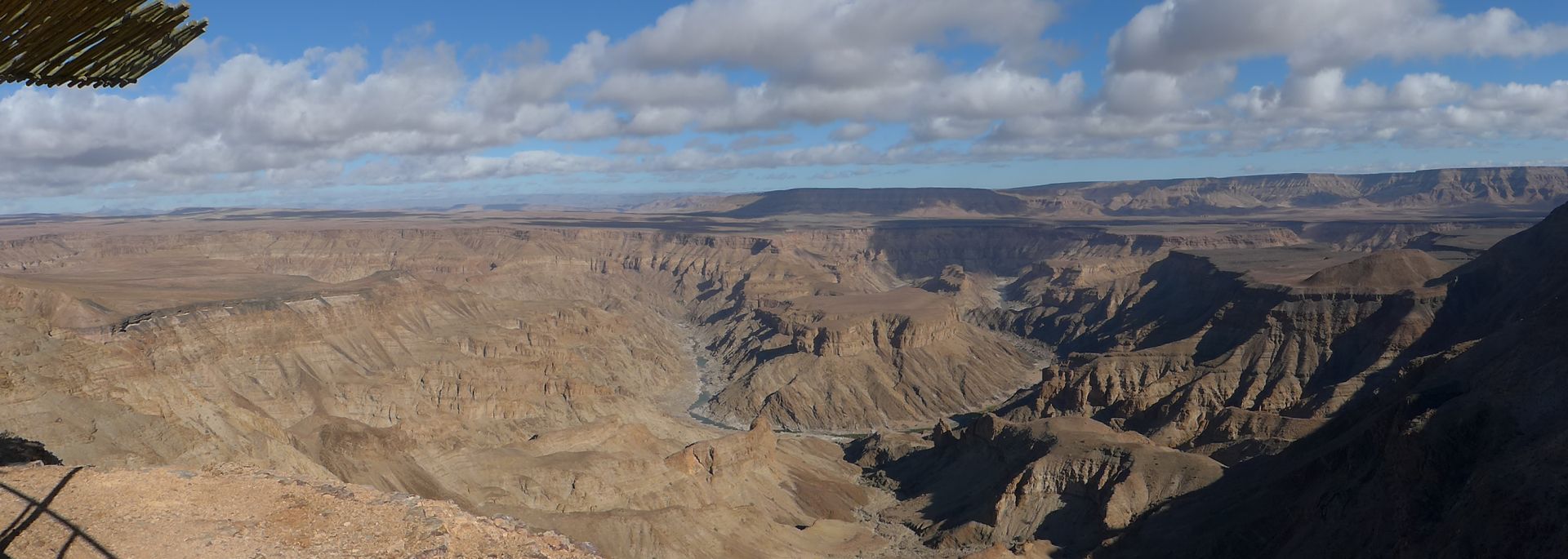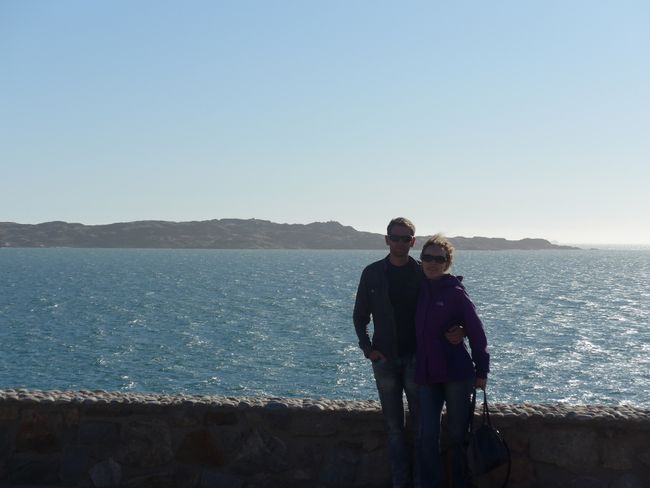Karlsbad, Hans-Heiling rocks and Loket
E phatlaladitšwe: 06.08.2023
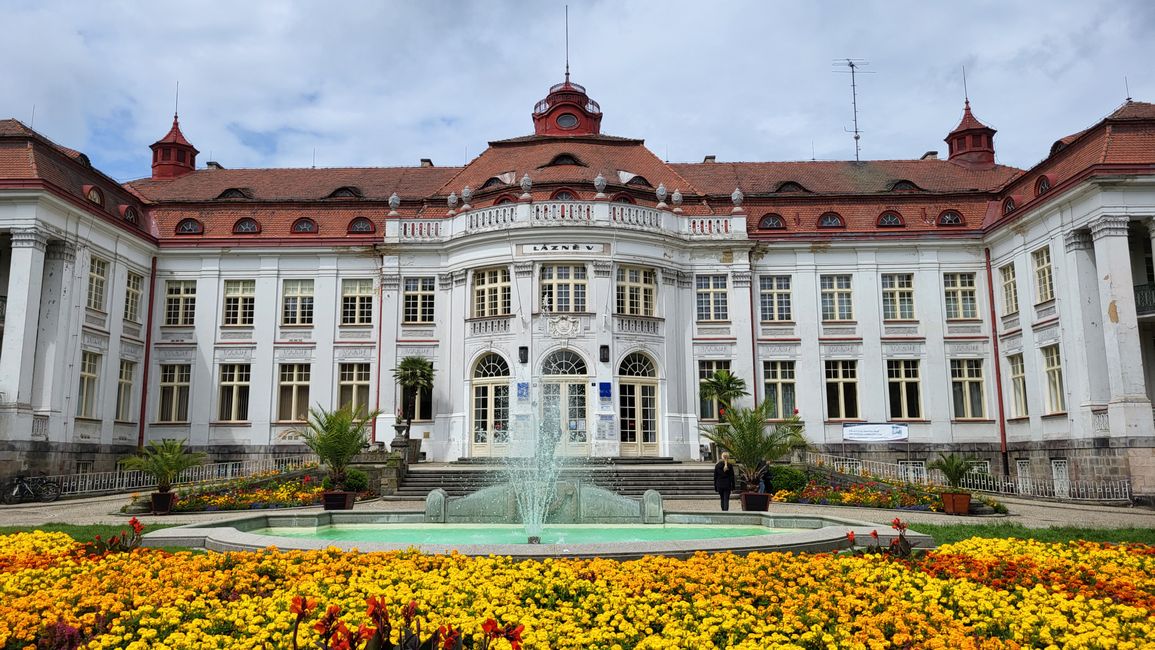
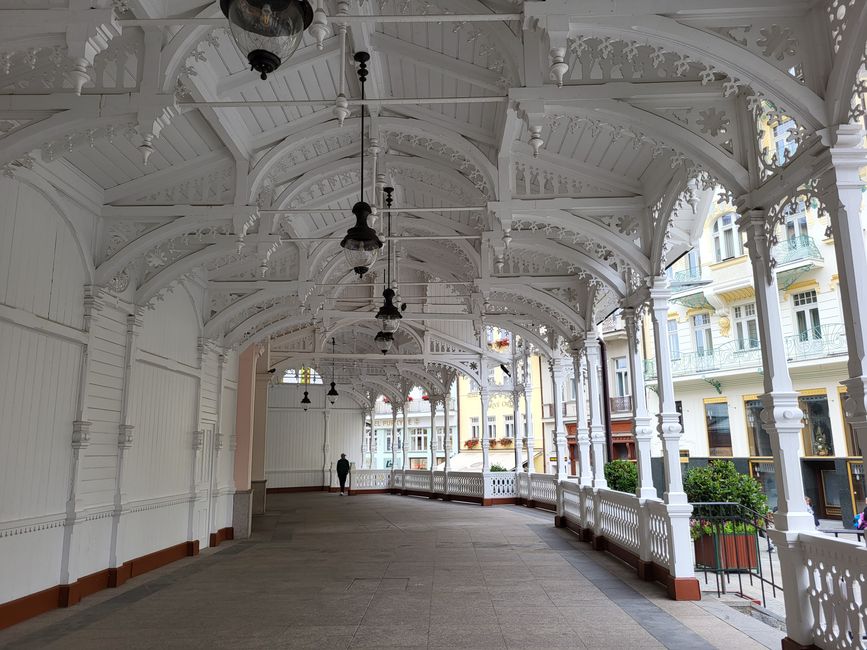
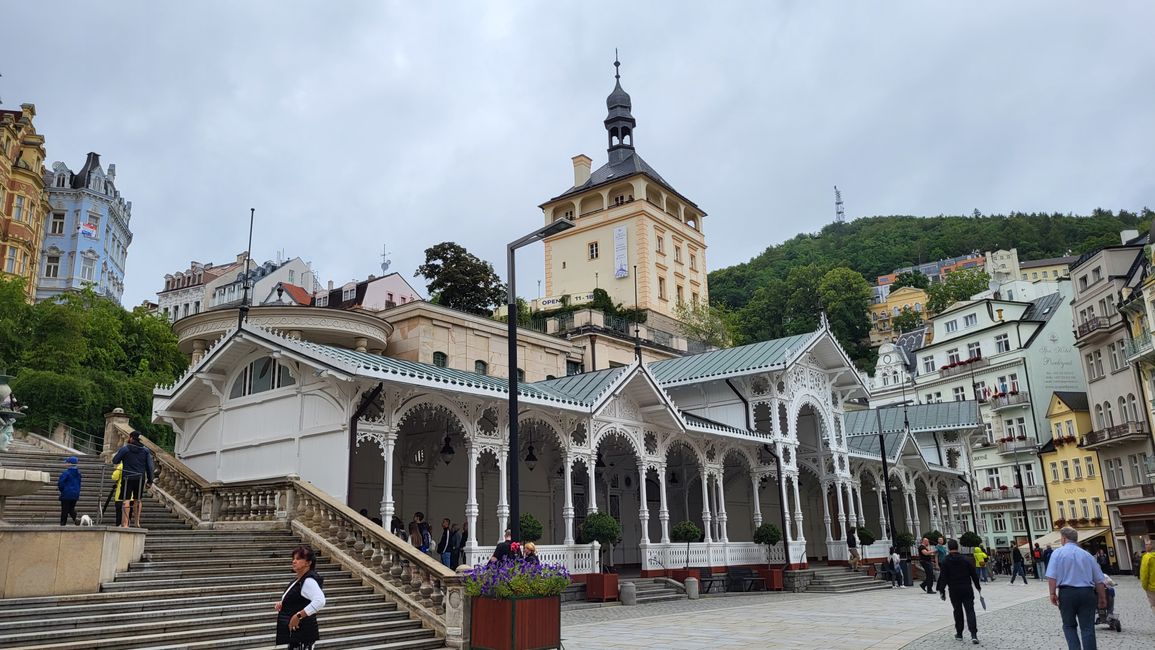
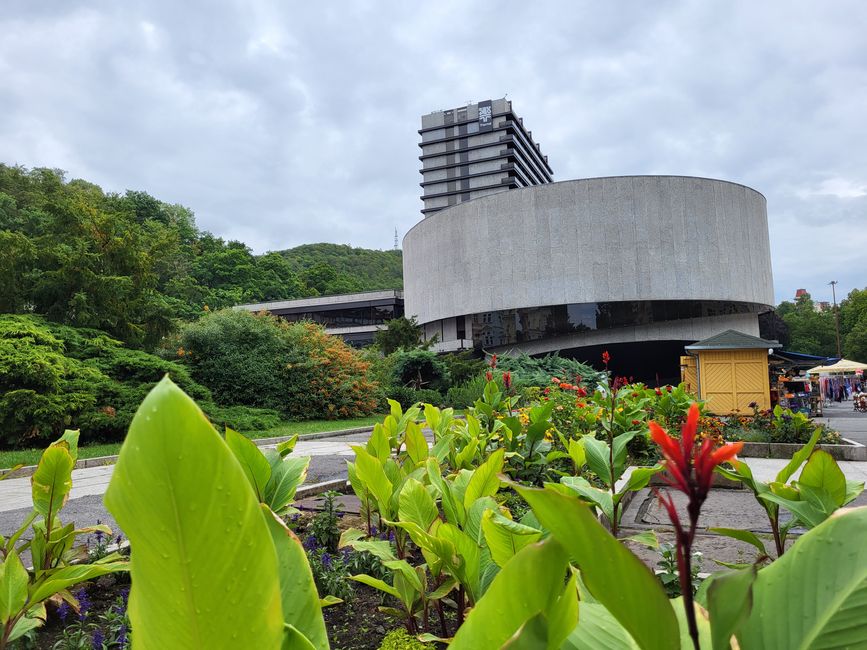
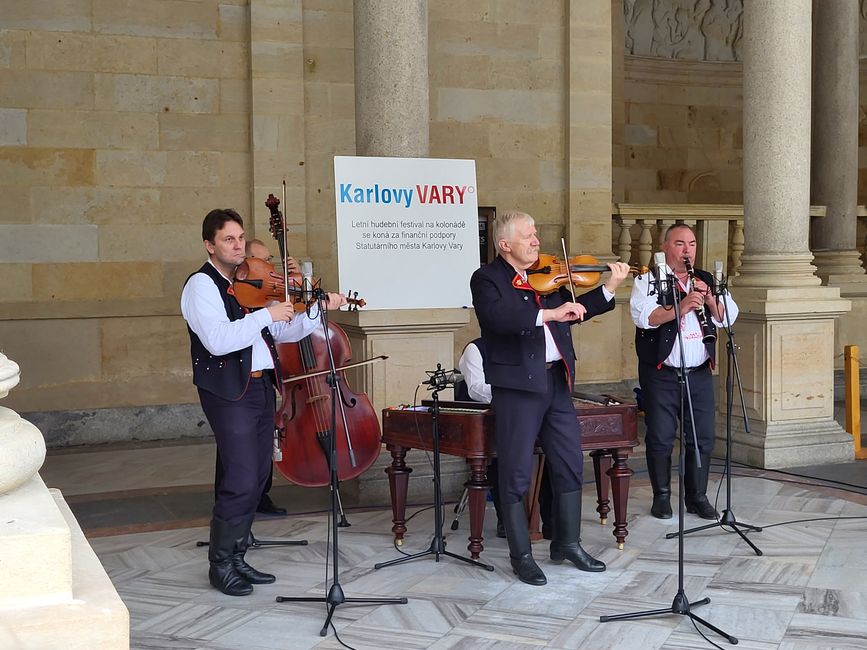
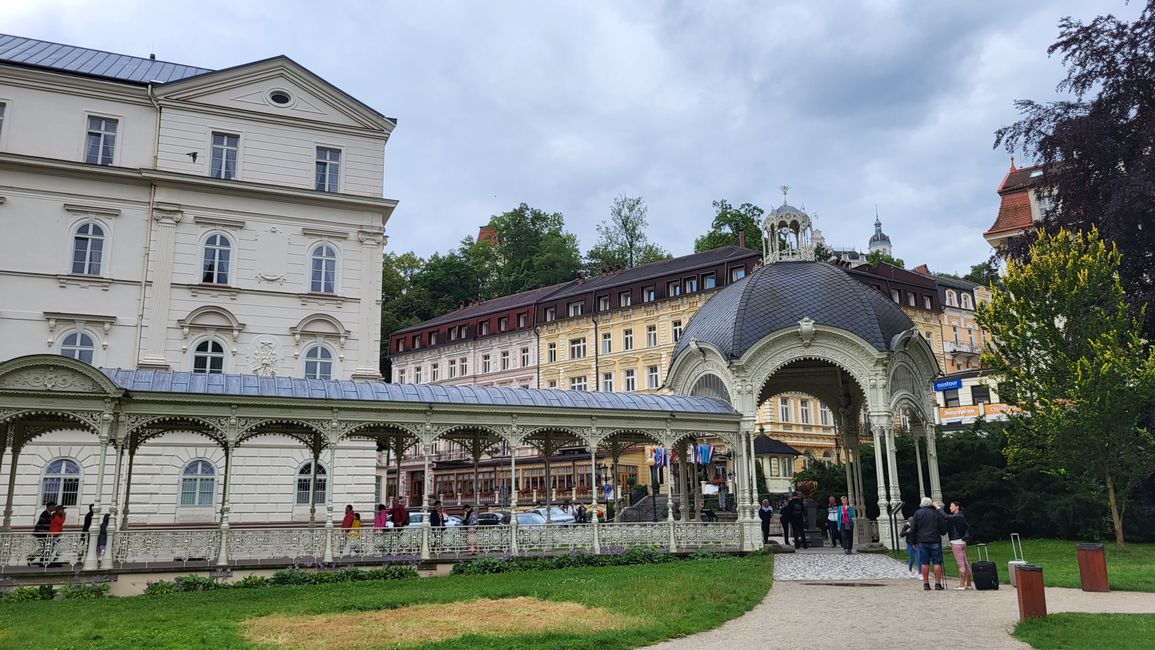
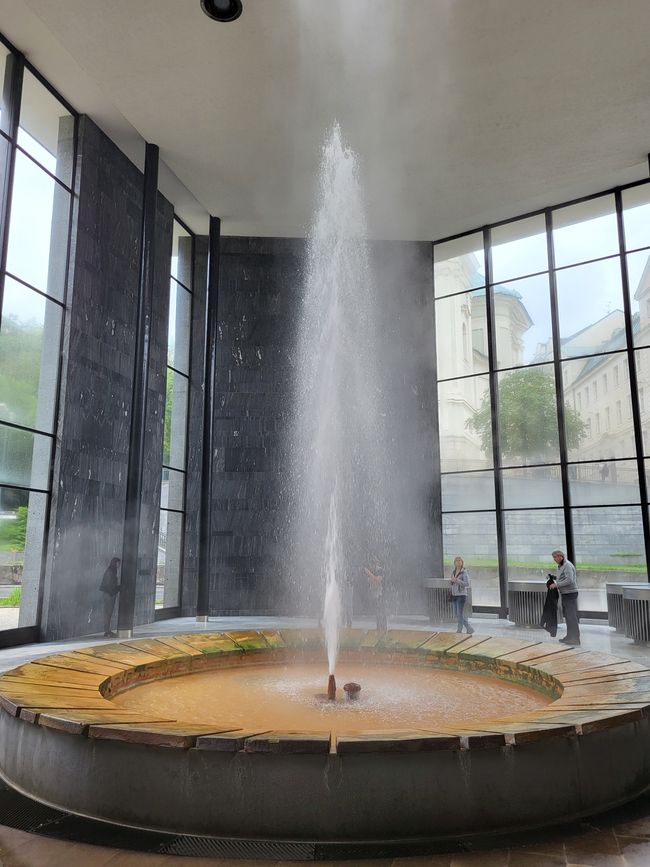
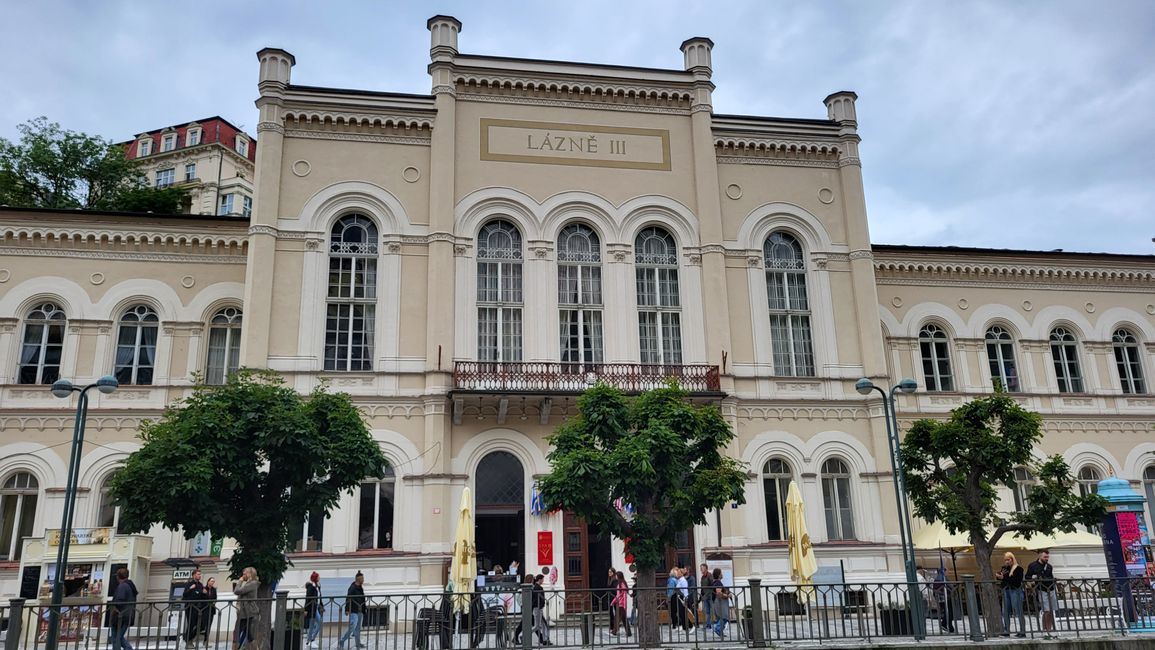
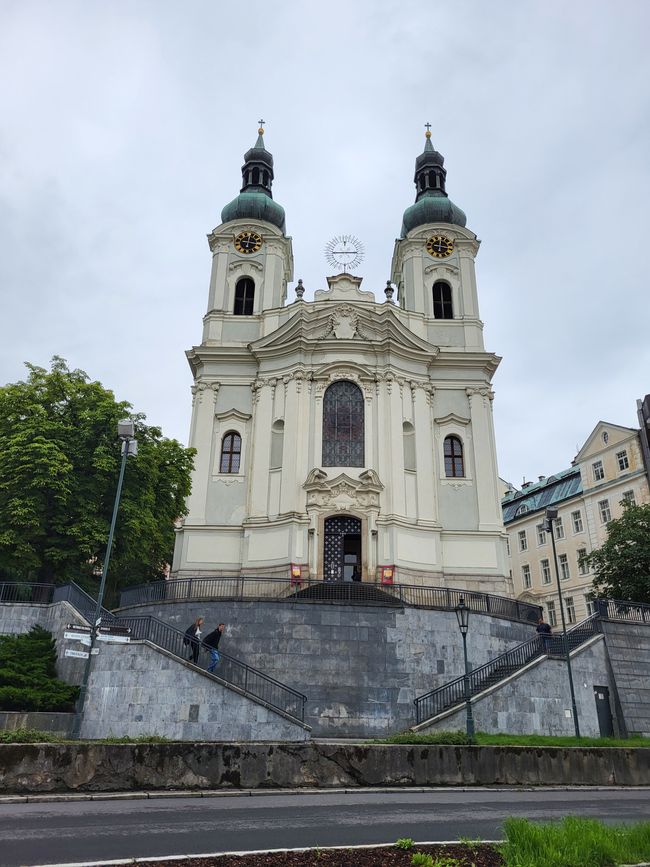
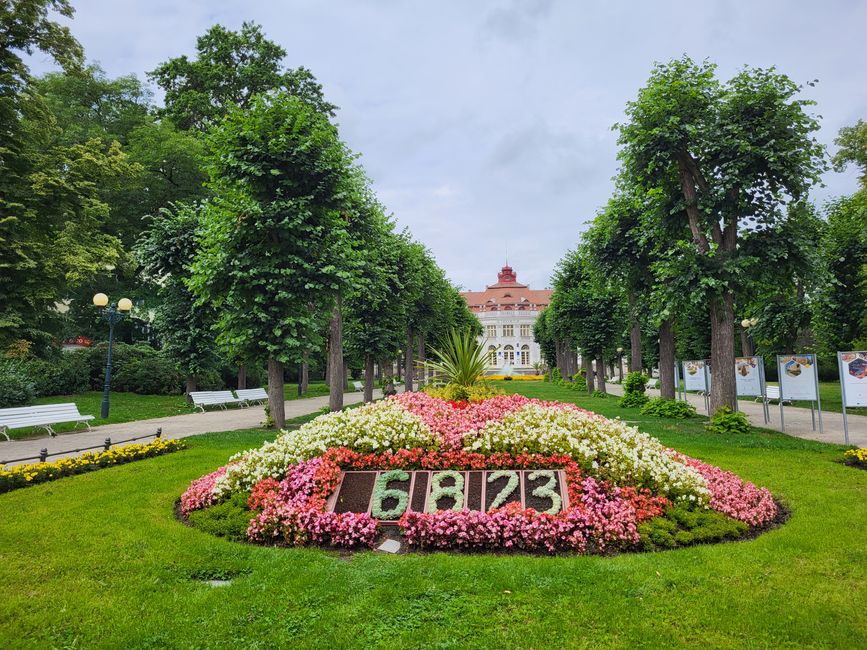
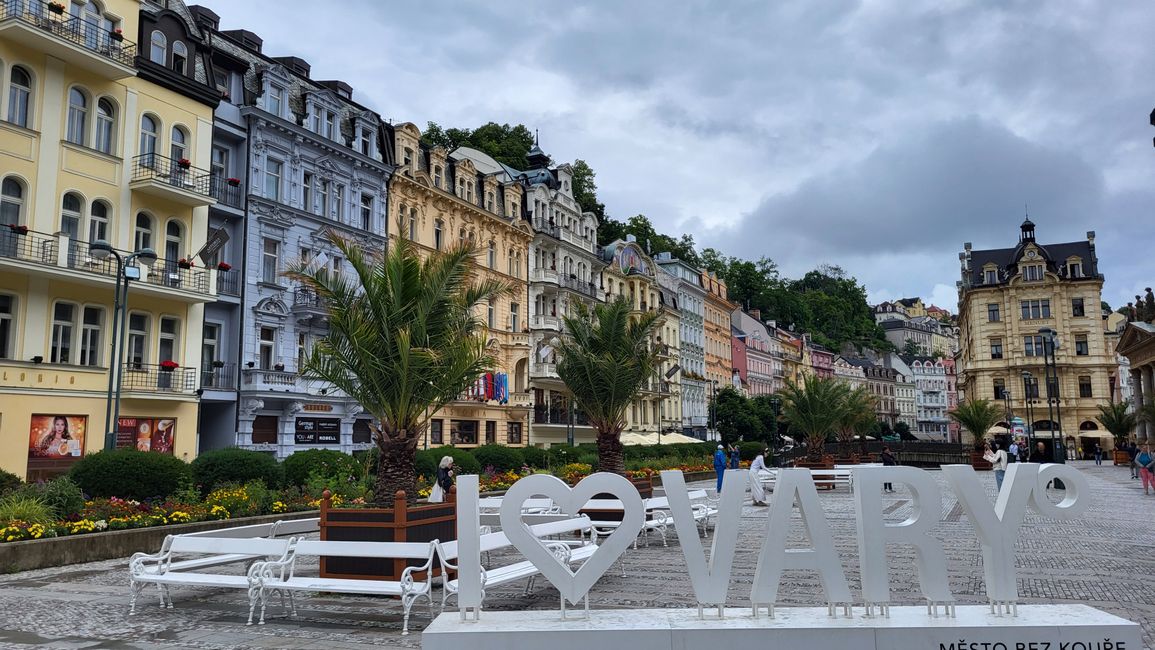
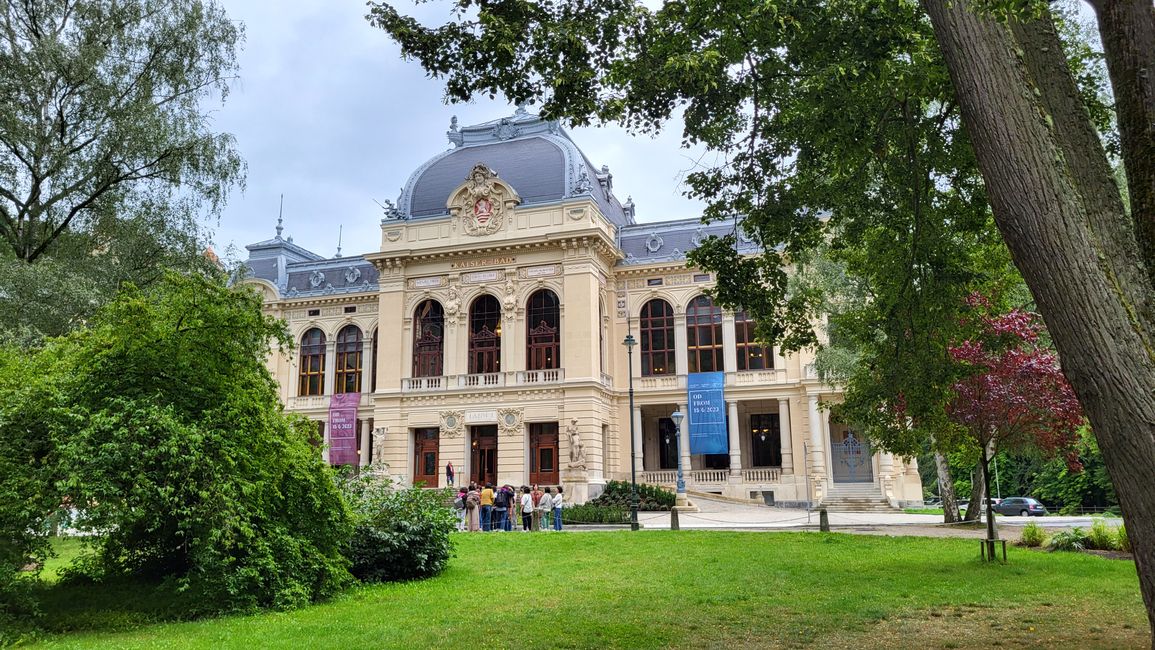
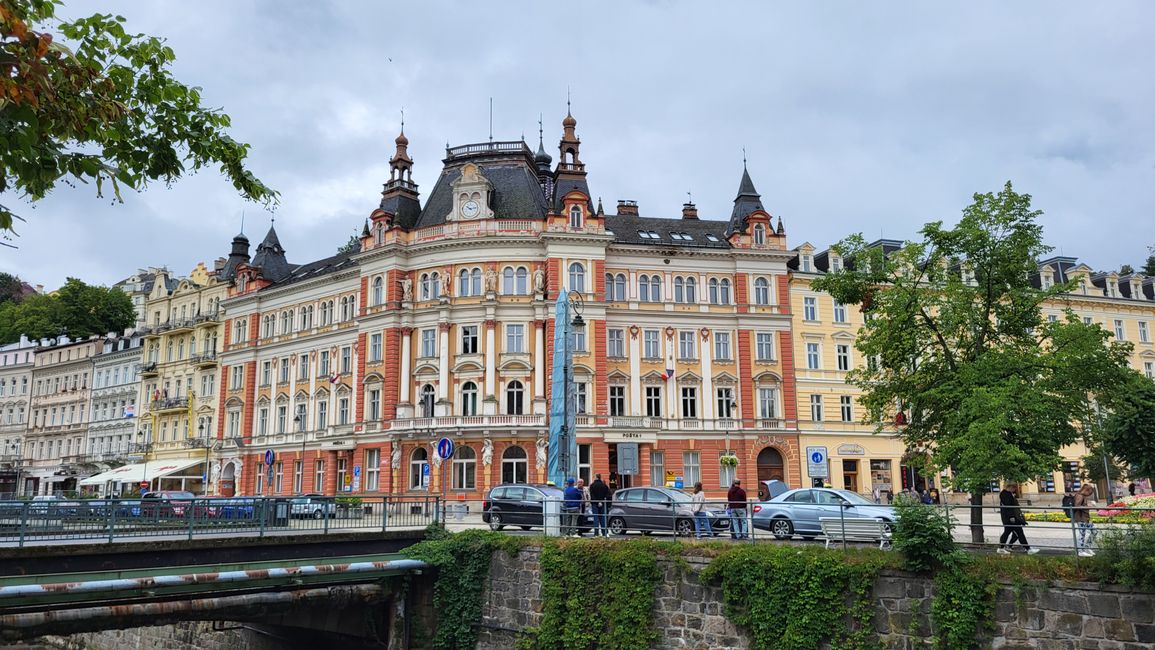
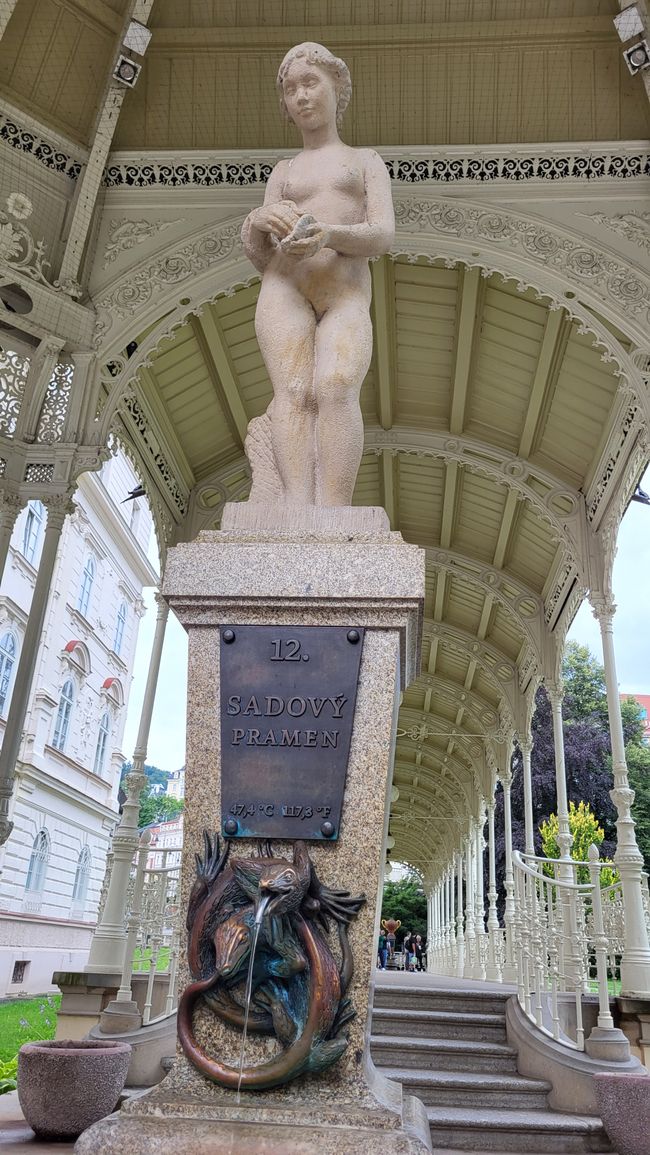
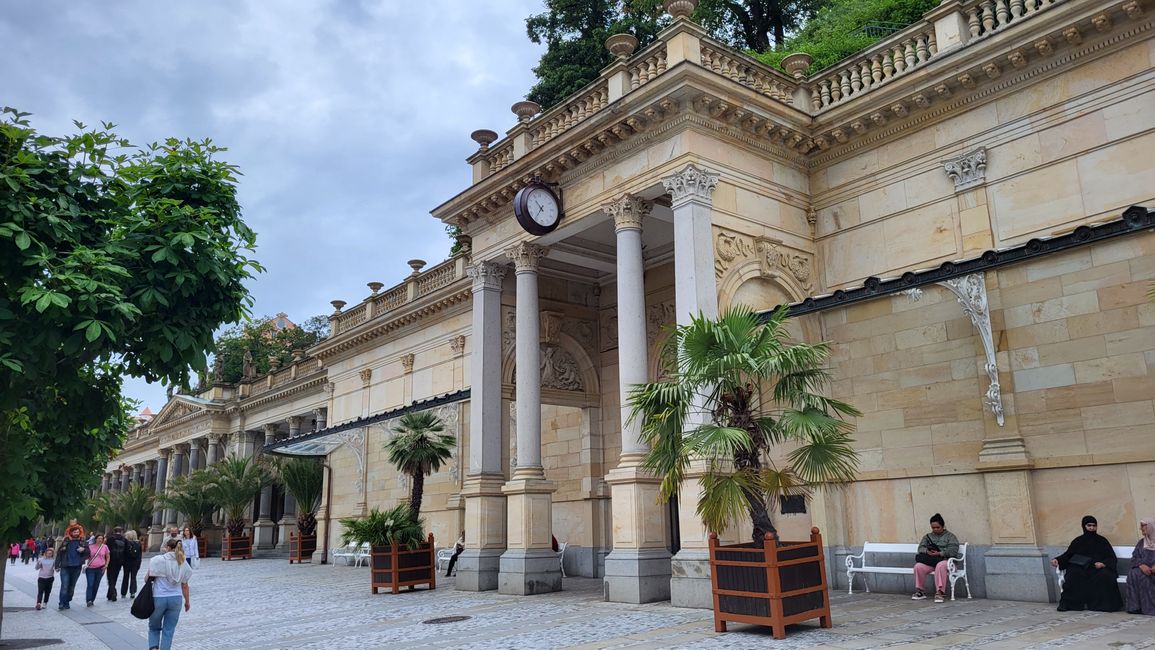
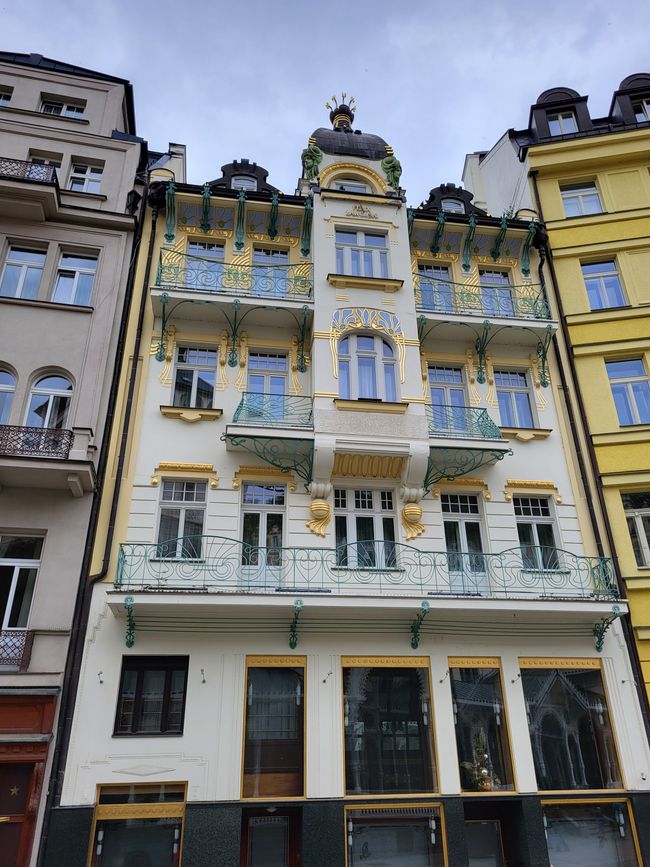
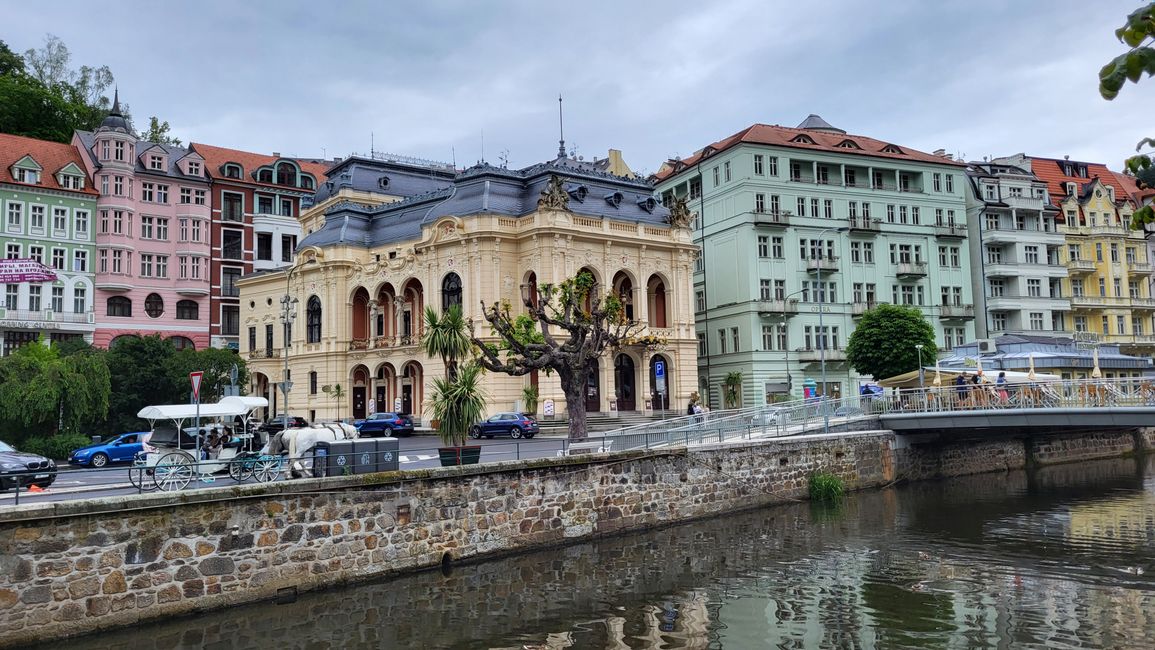
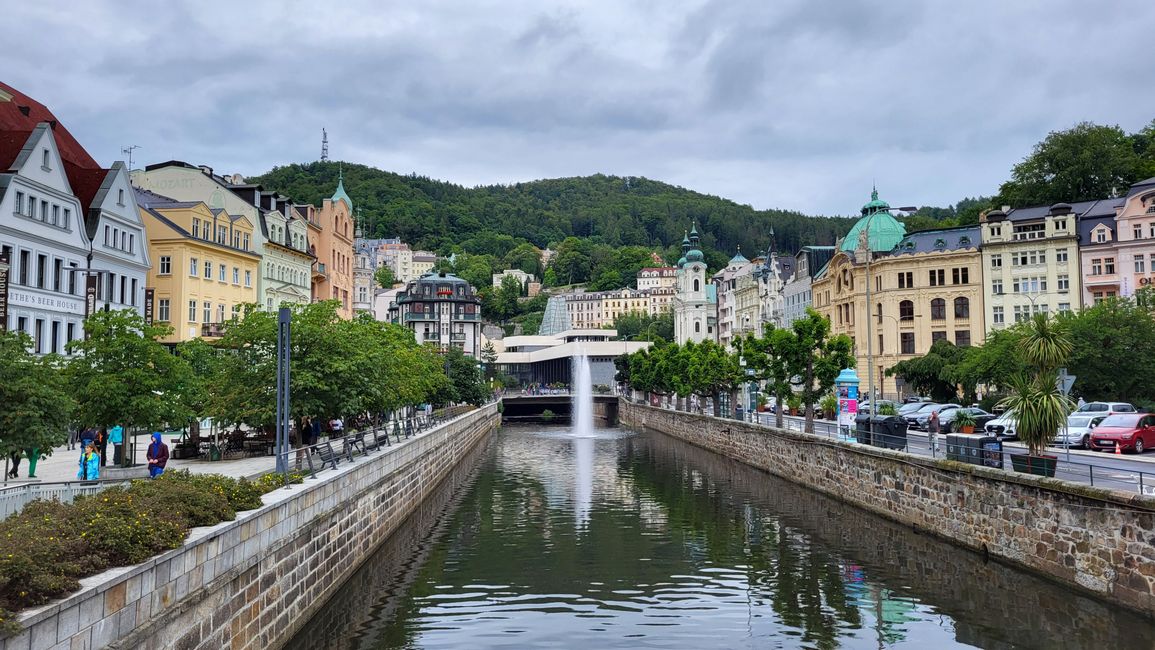
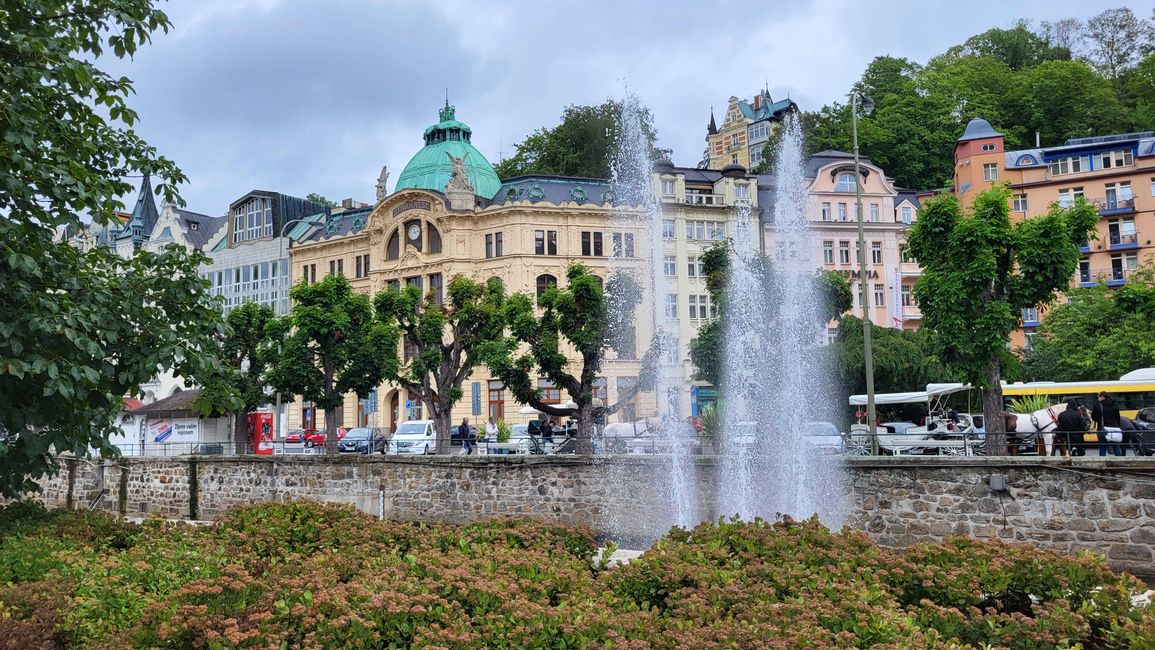
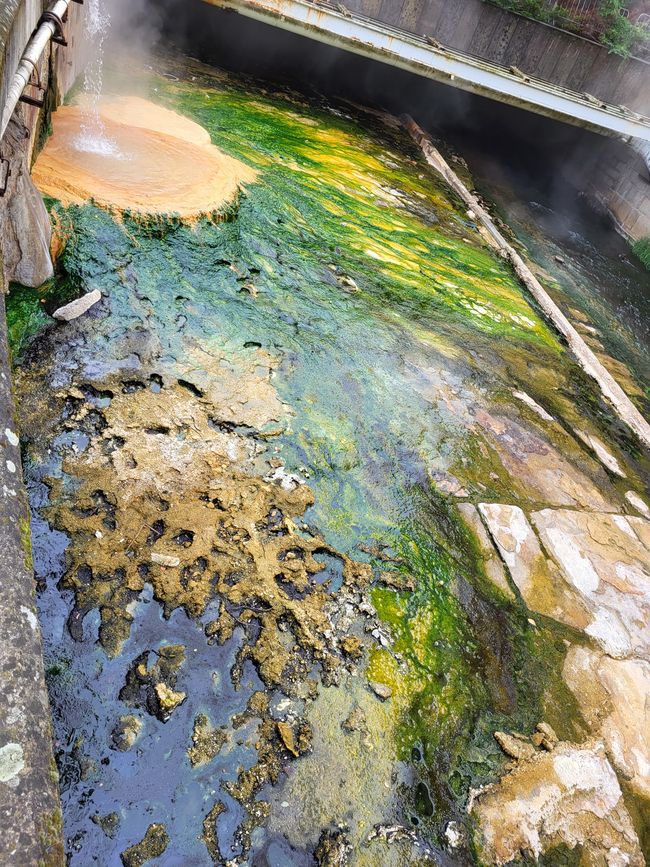
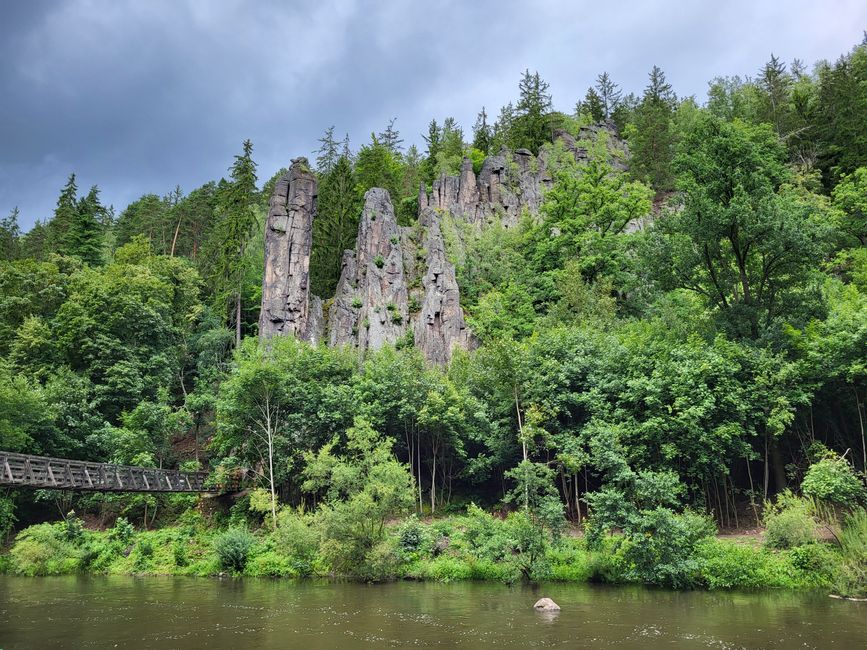
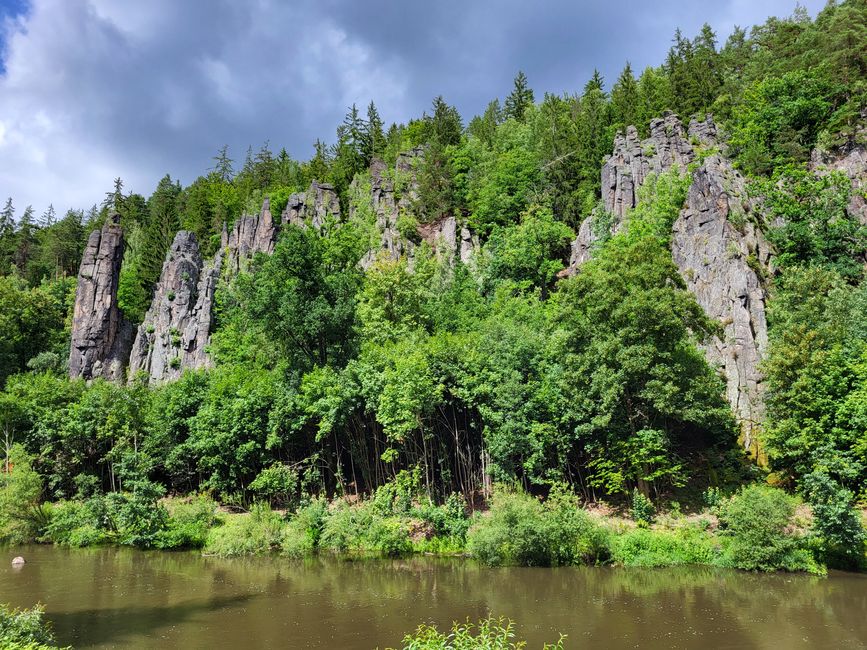
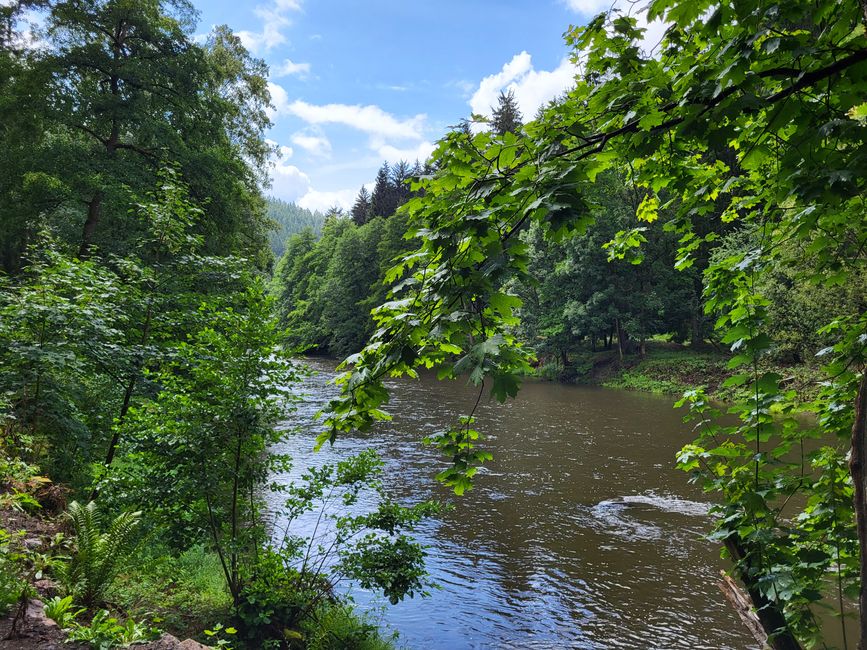
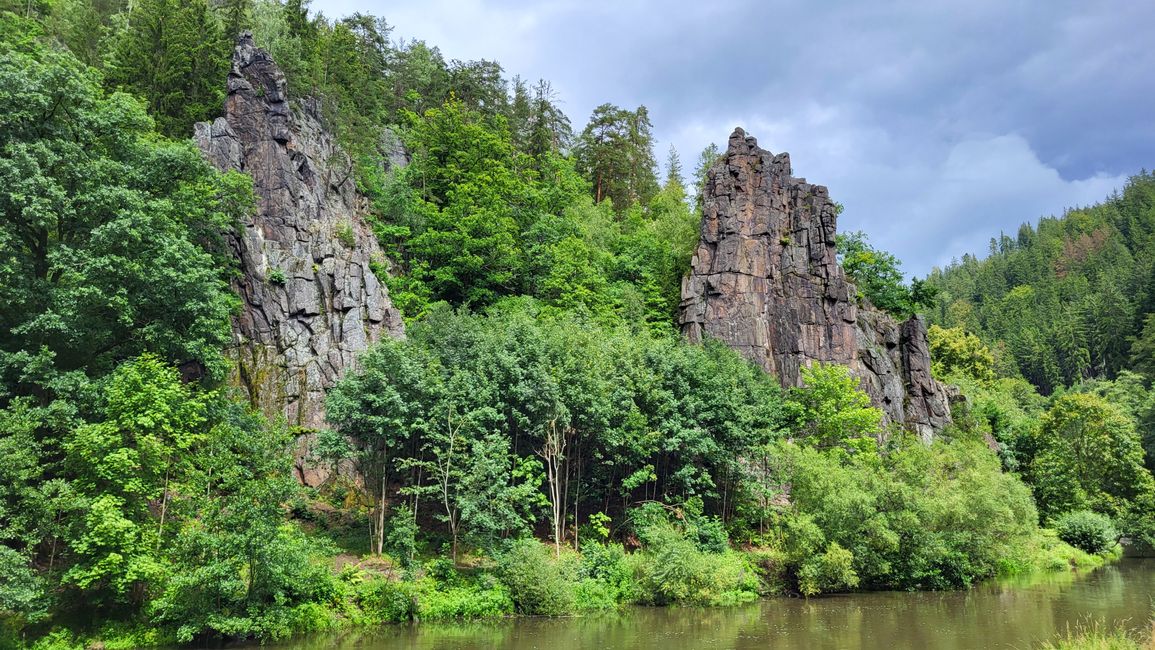
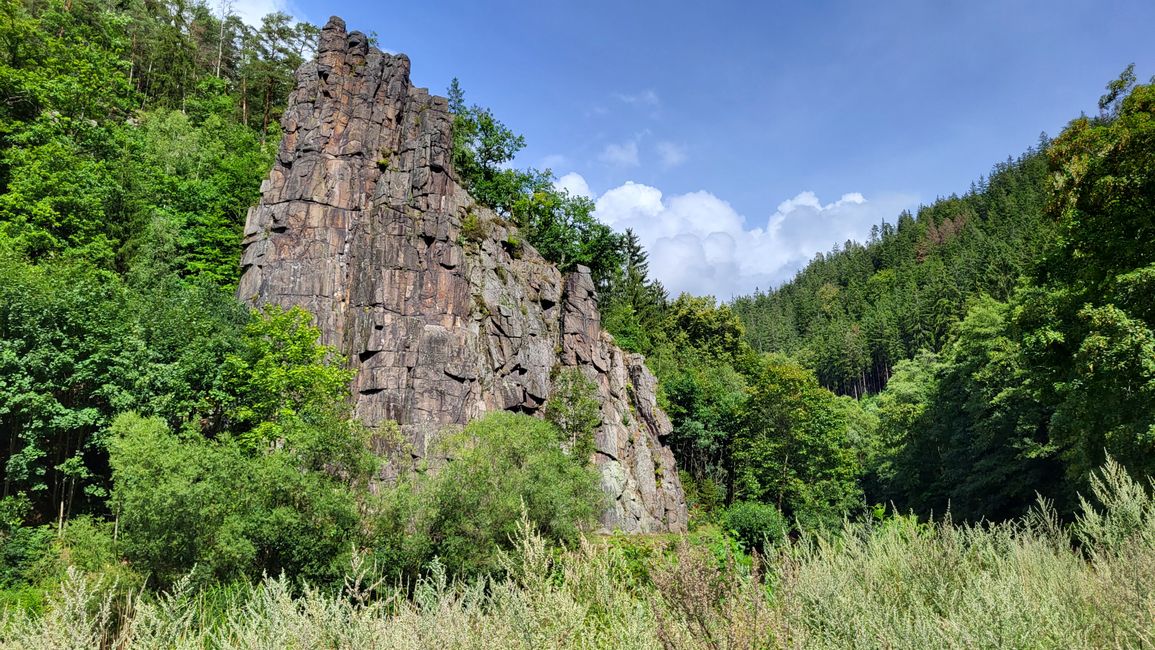
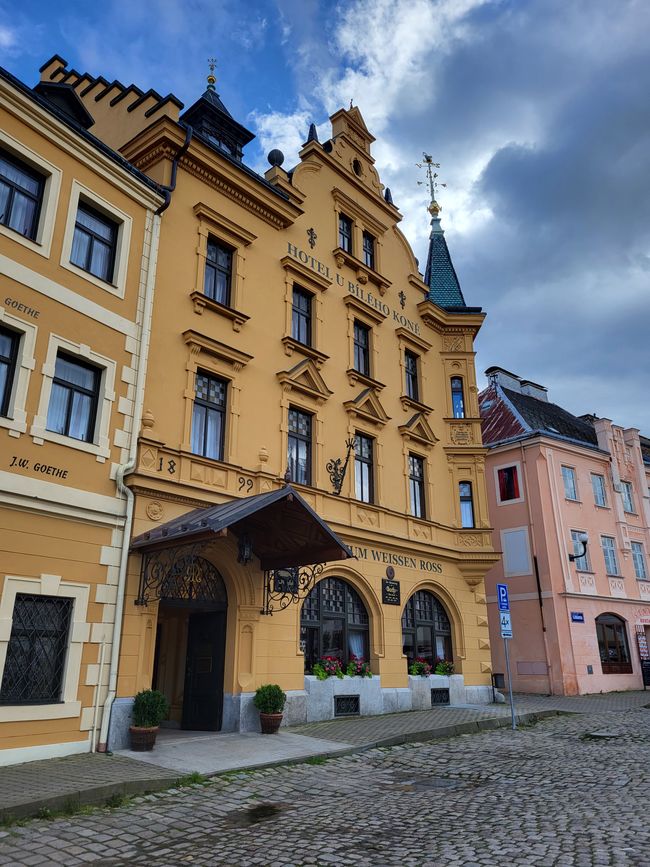
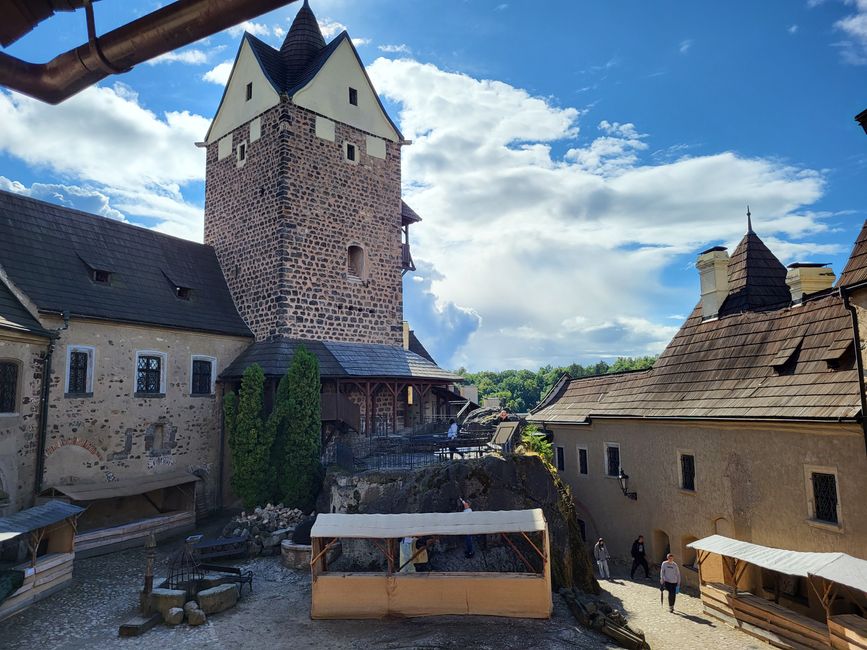
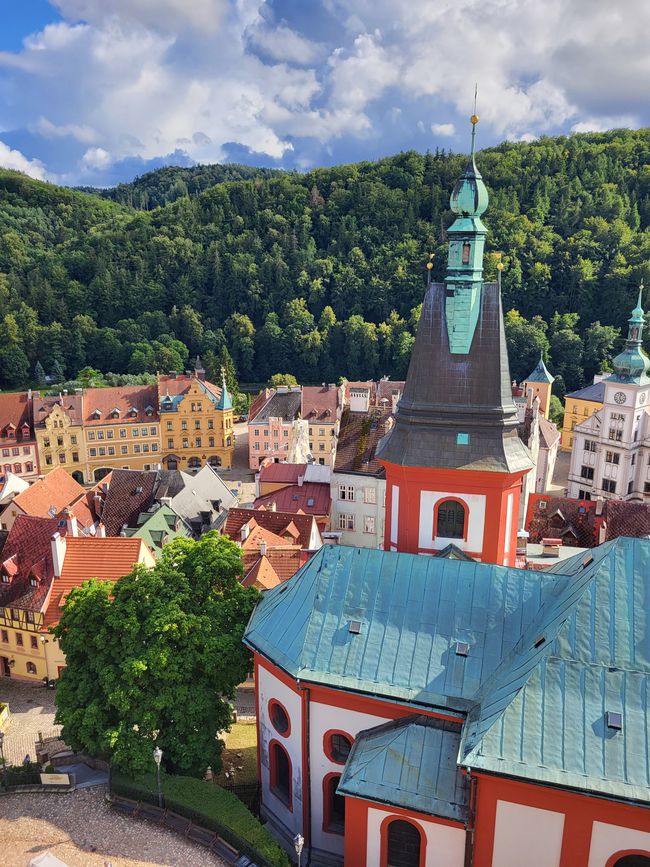
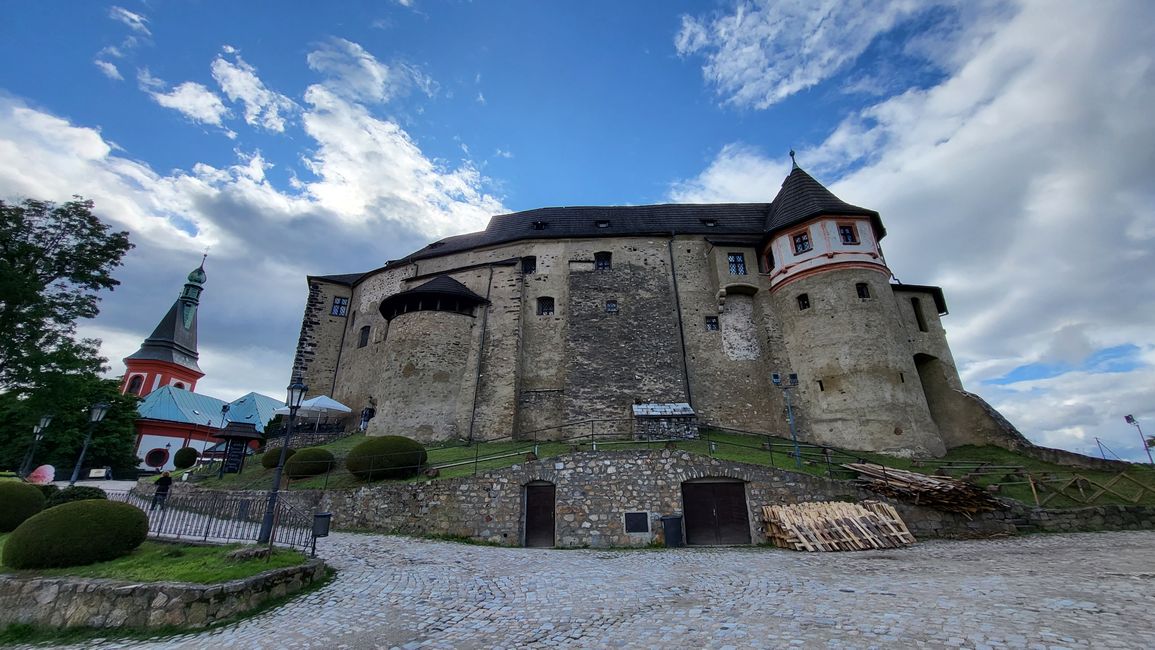
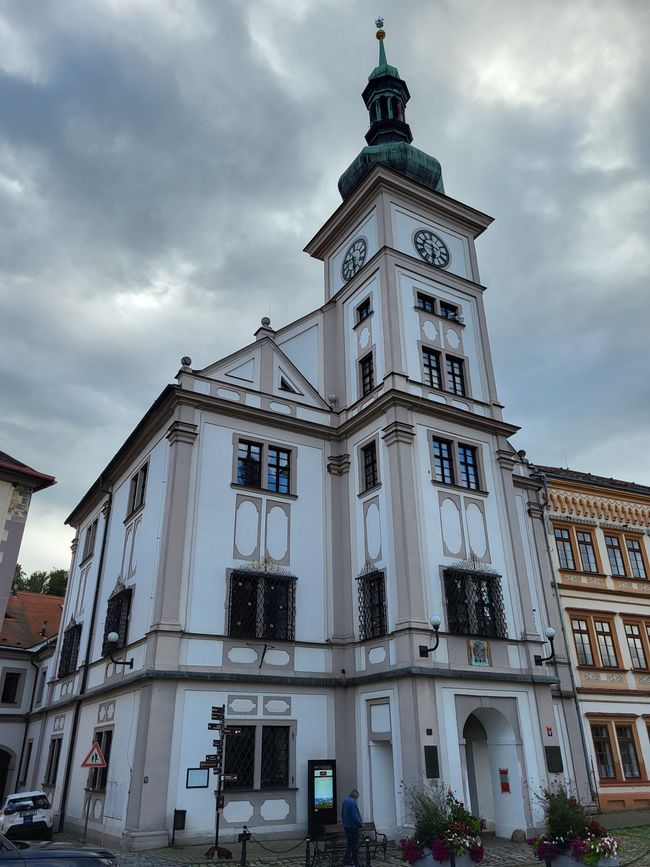
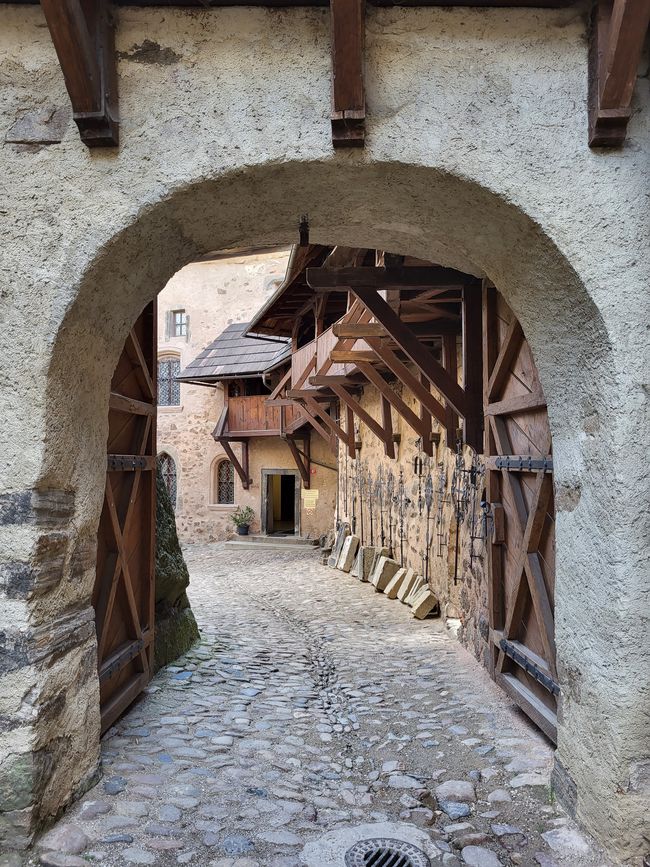
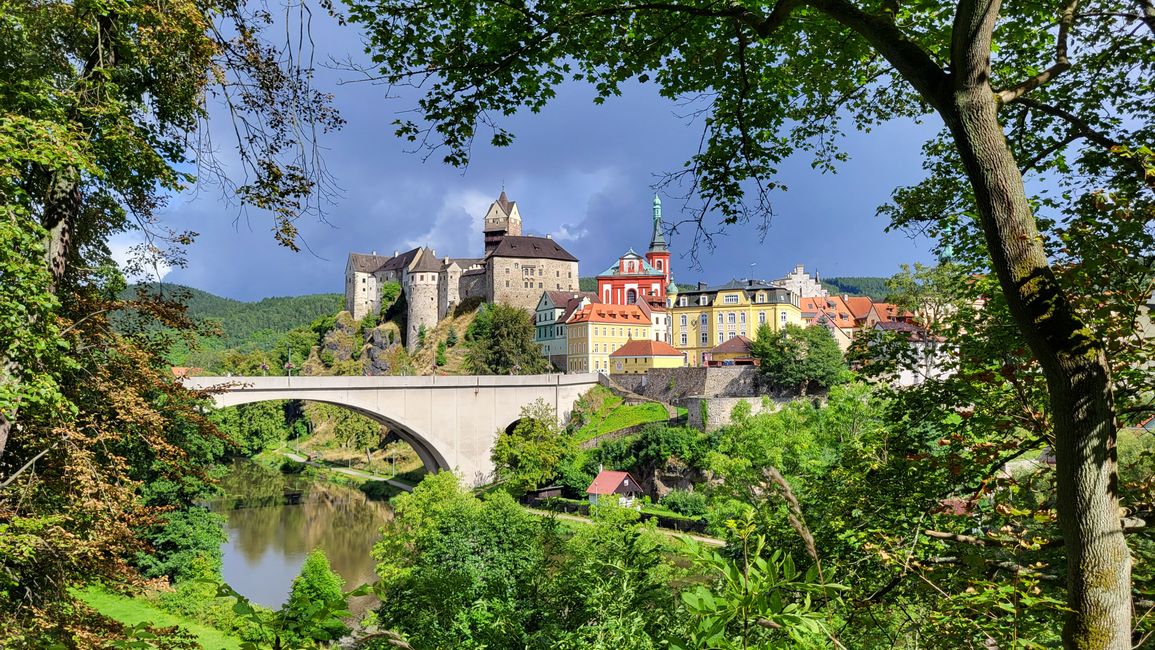
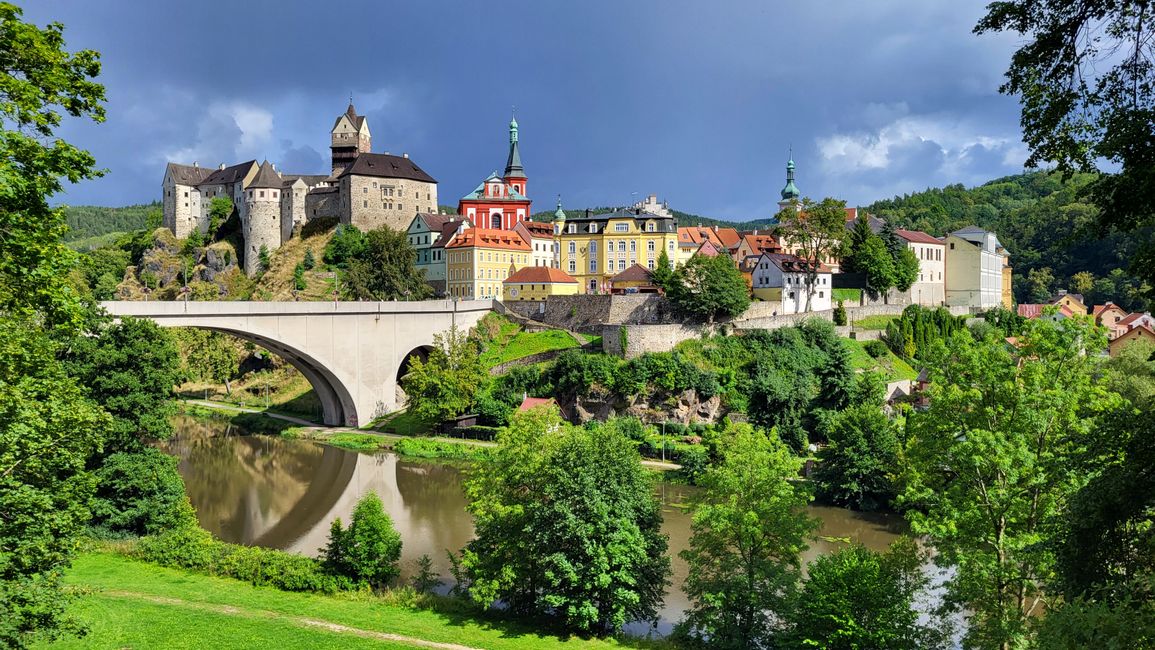
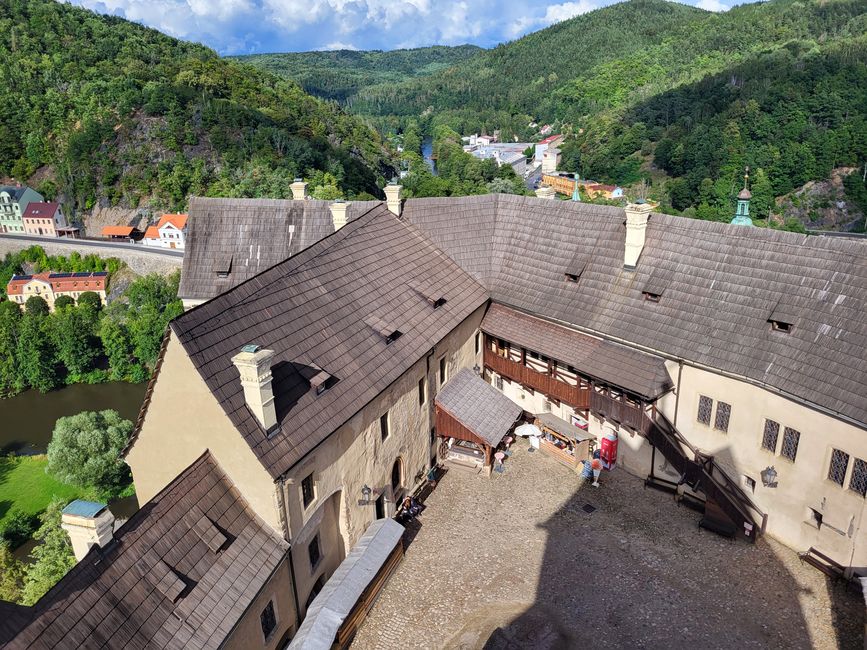
Ingwadiše go Lengwalo la Ditaba
In the 19th century, prominent figures from politics, business and culture met here, and today we also visited the most famous spa in the Czech Republic.
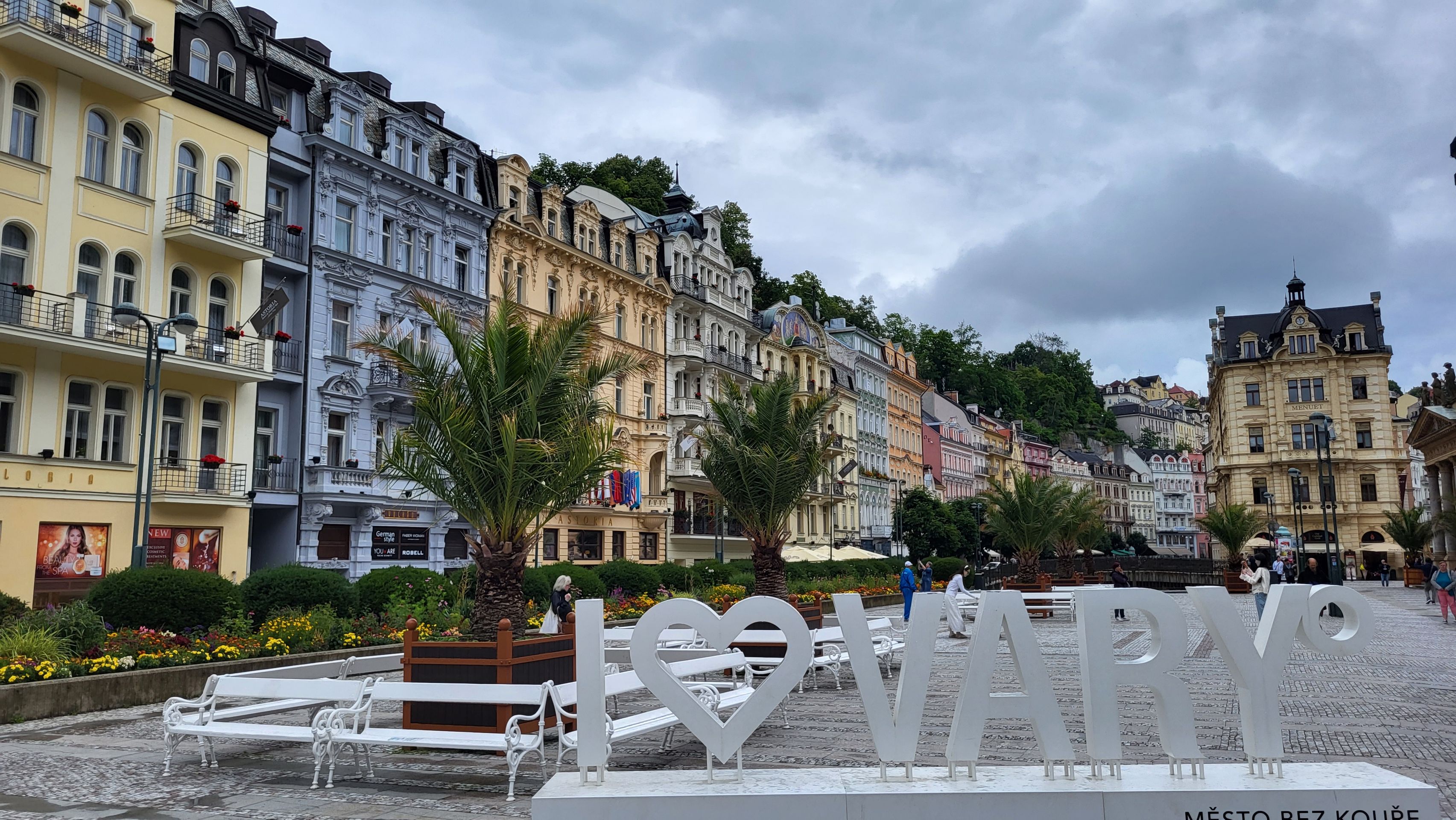
In Karlsbad there are twelve healing springs, with temperatures ranging from 40°C to 73°C, which are used for bathing and drinking cures.

Protected in various richly decorated colonnades, visitors can fill their own cup for a drinking cure.
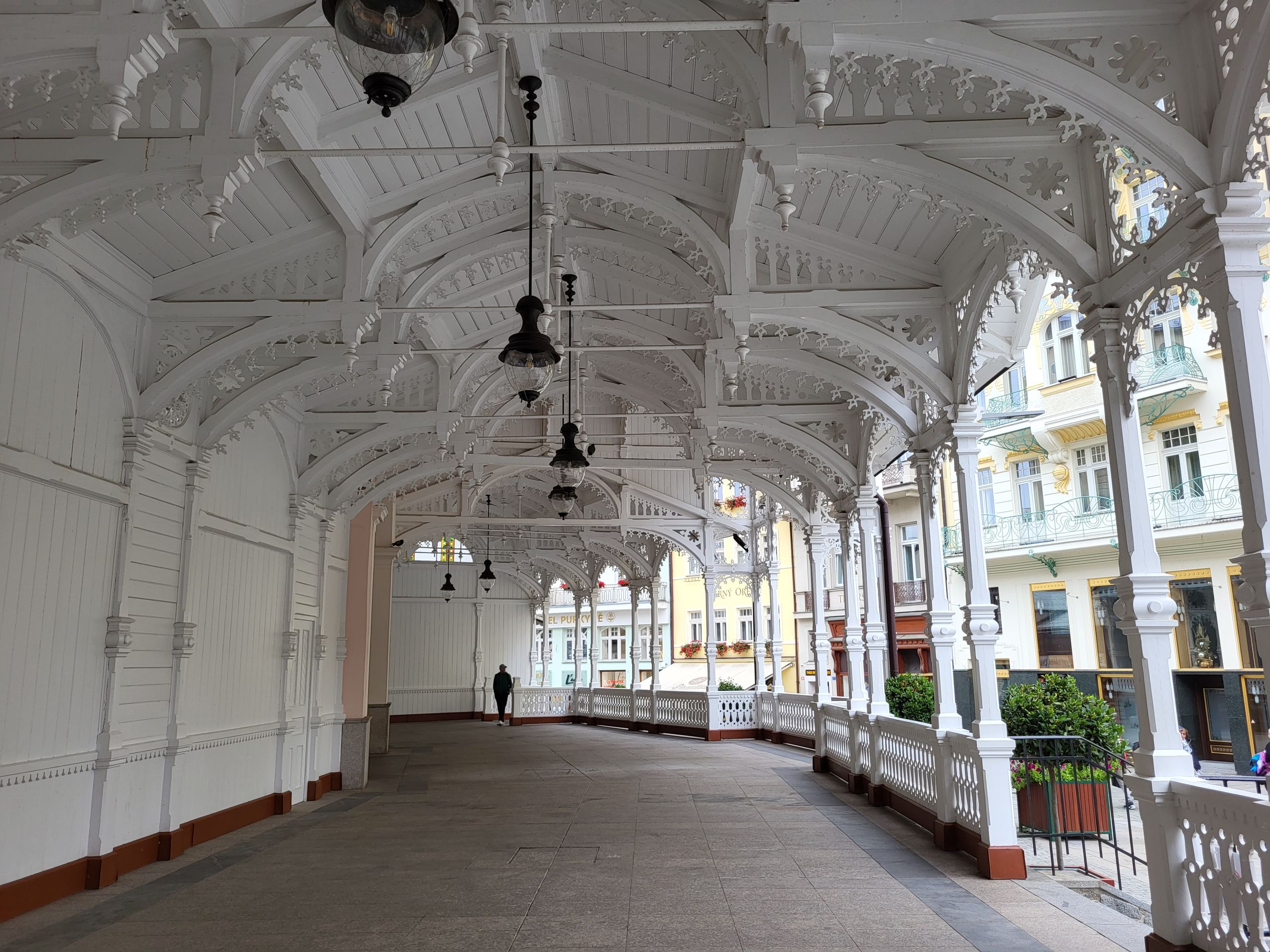
We also had a thermos flask with a cup and empty drinking bottles with us.
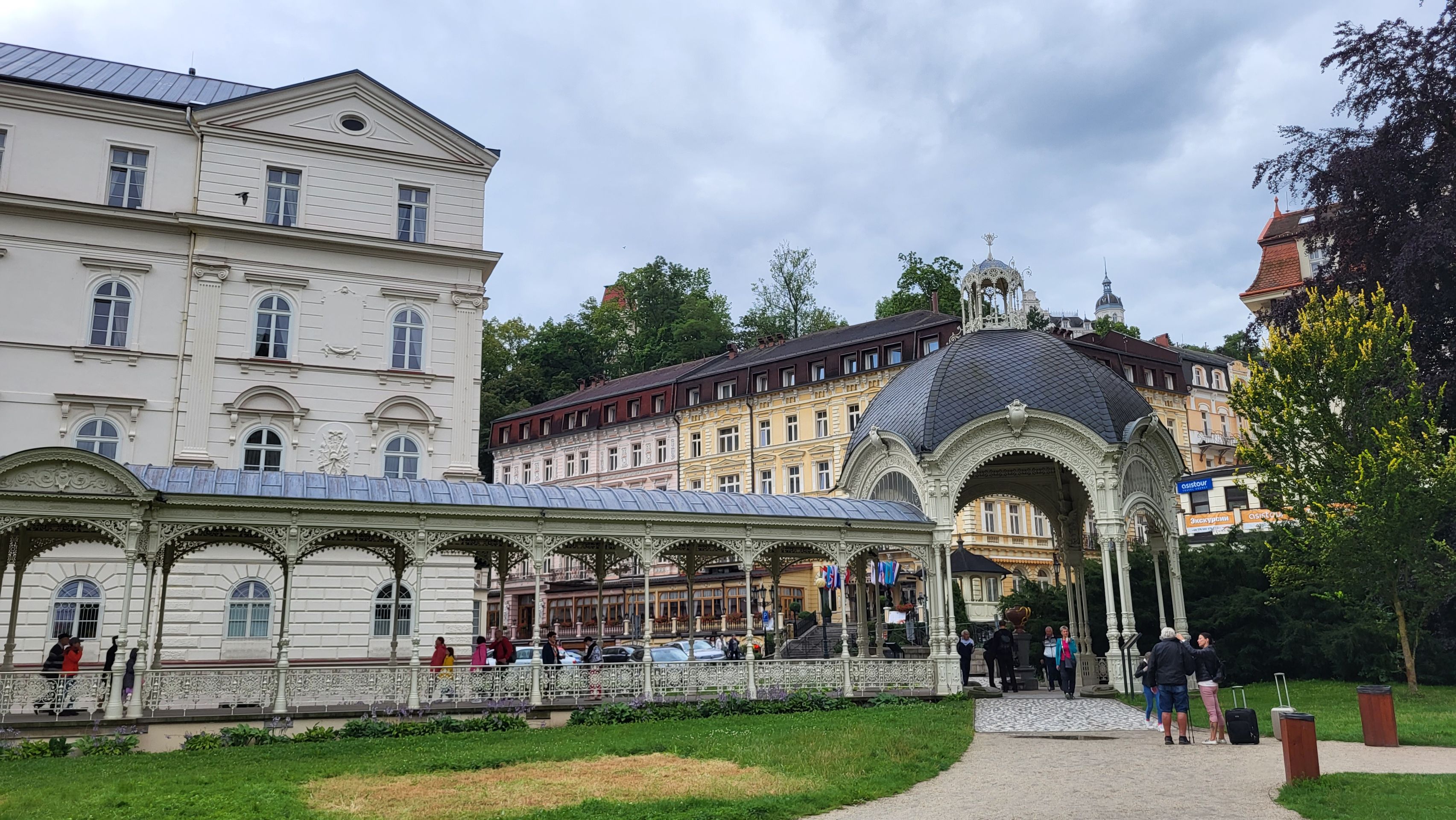
After the first samples, however, it quickly became clear to us that we probably wouldn't take any healing water with us...
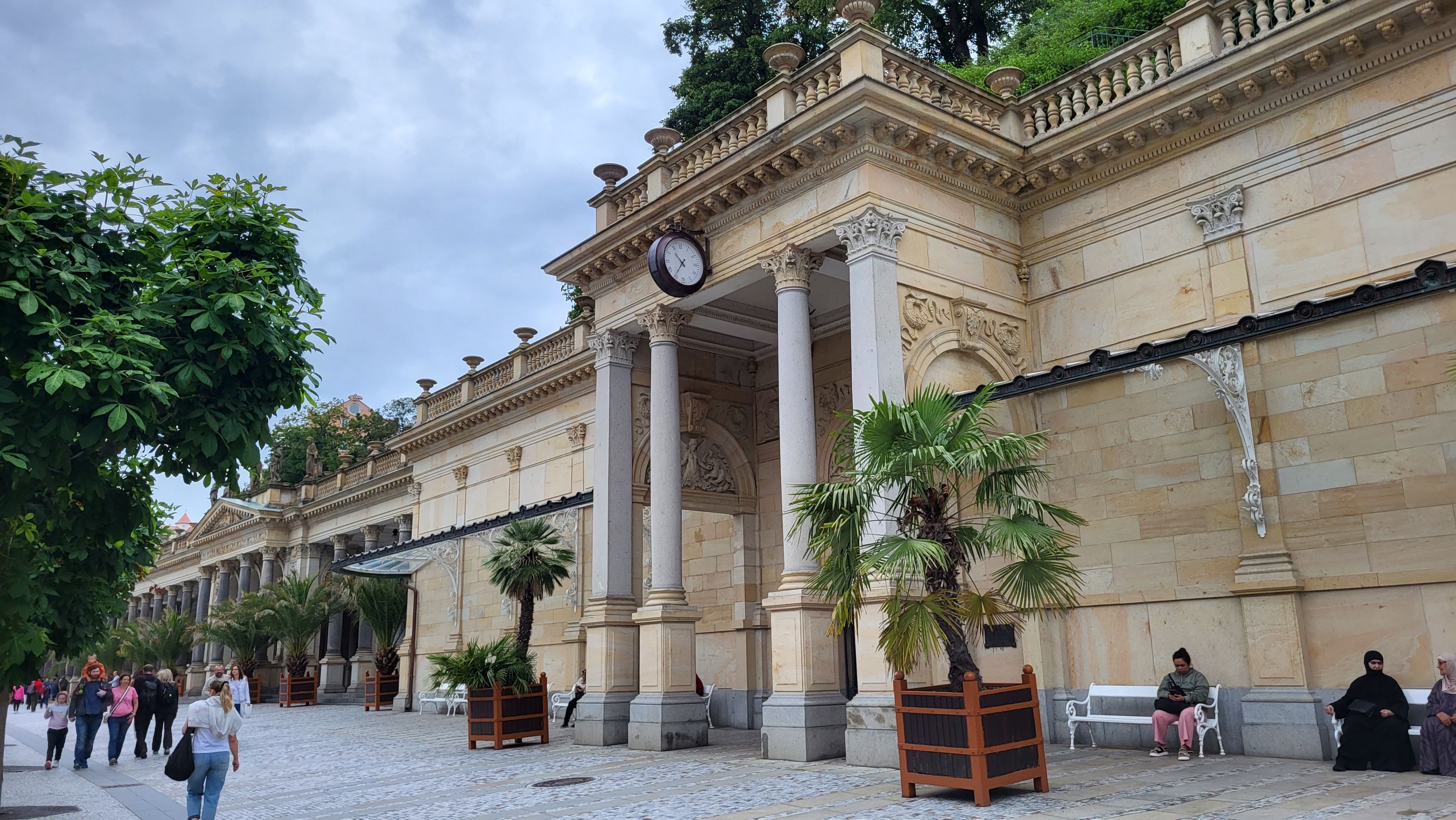
We didn't like the metallic-salty taste at all.

I bravely tried the water of each spring we passed, but unfortunately the taste didn't improve...
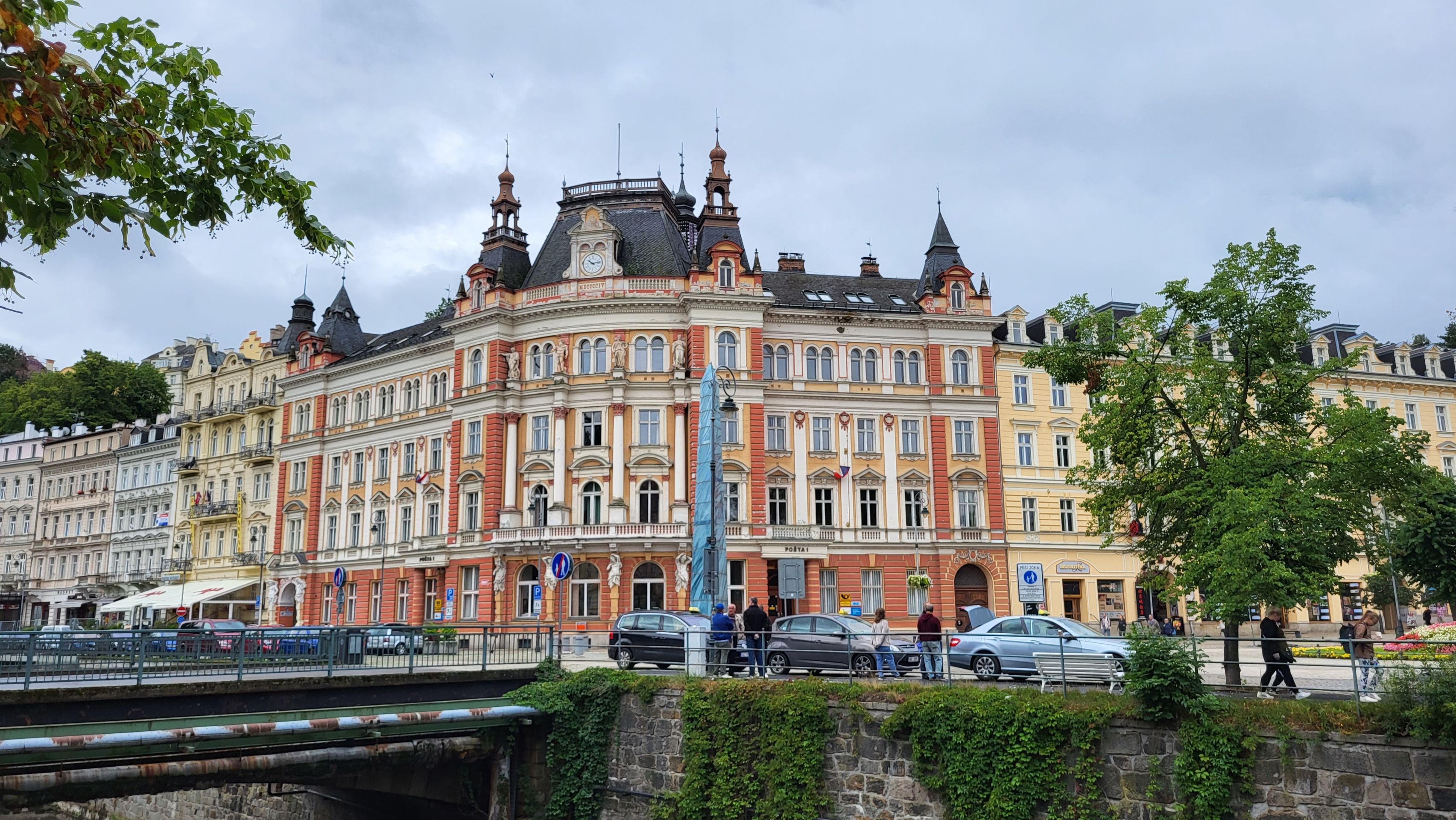
A special thermal spring is the 'Geyser', where 2000 liters of water shoot out of the earth's interior in a 12-meter-high fountain every minute.
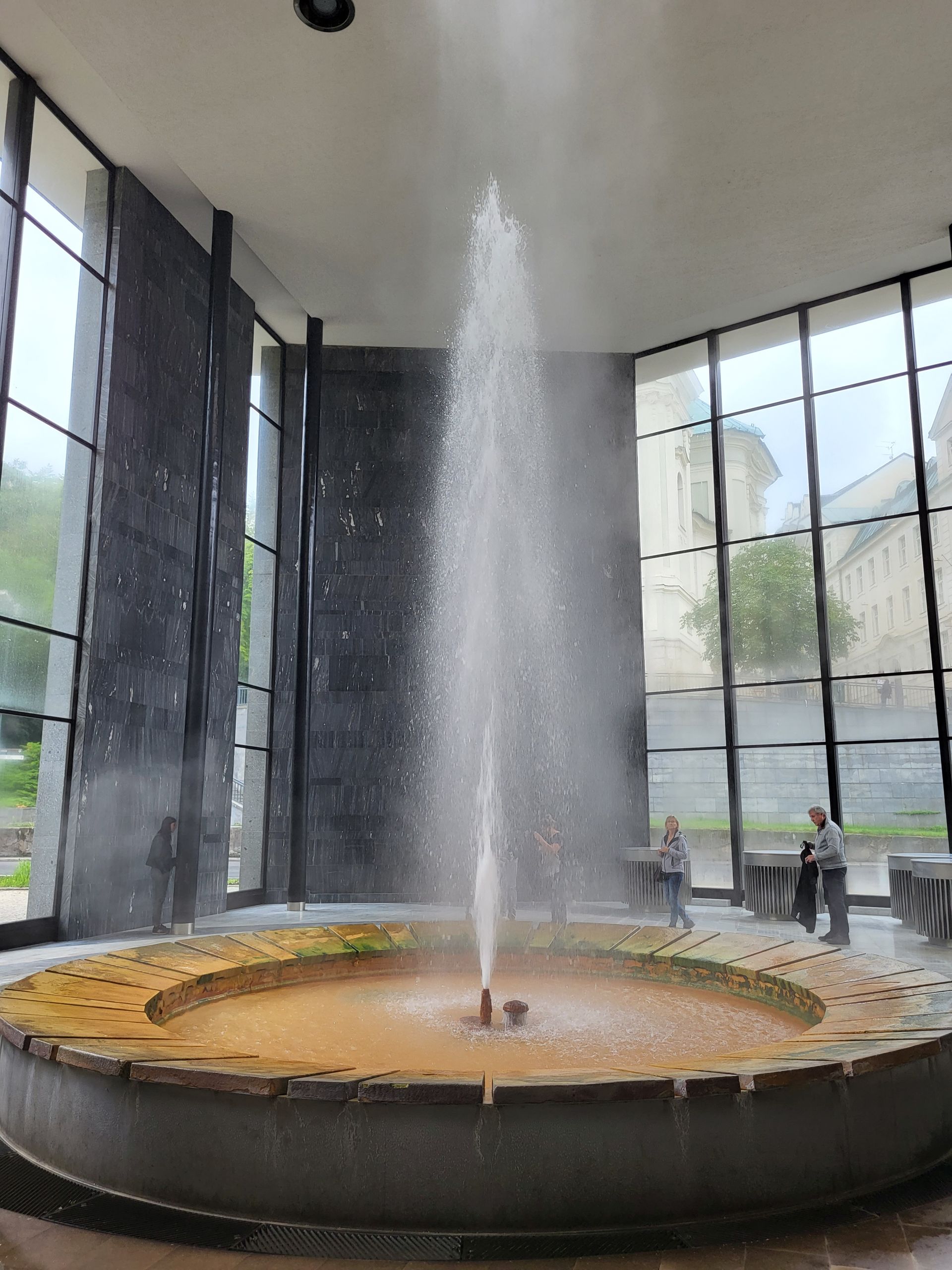
However, it didn't convince us in terms of taste either.
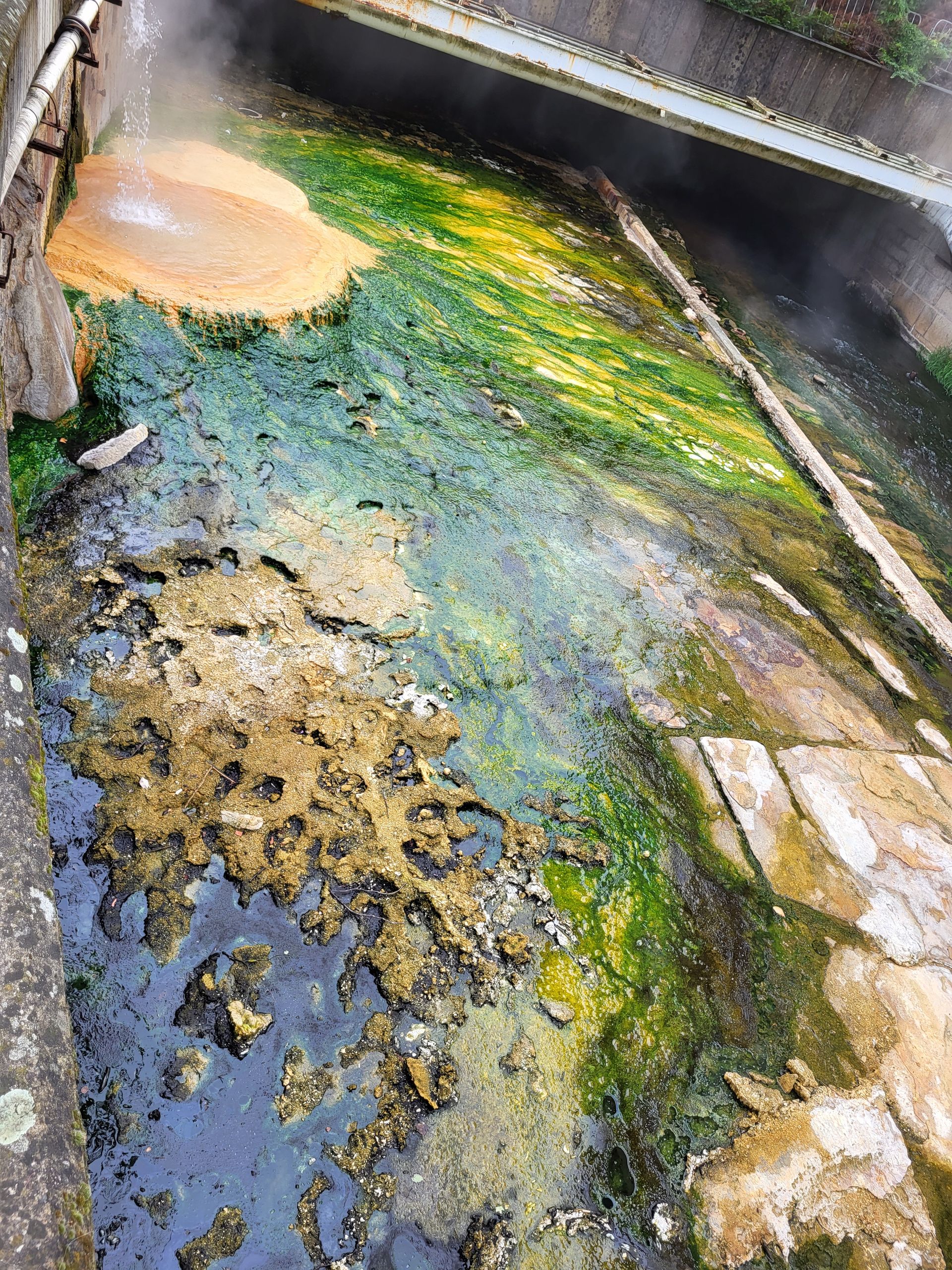
The architecture of the city, with many buildings from the Art Nouveau and Historicism periods, appealed to us very much.
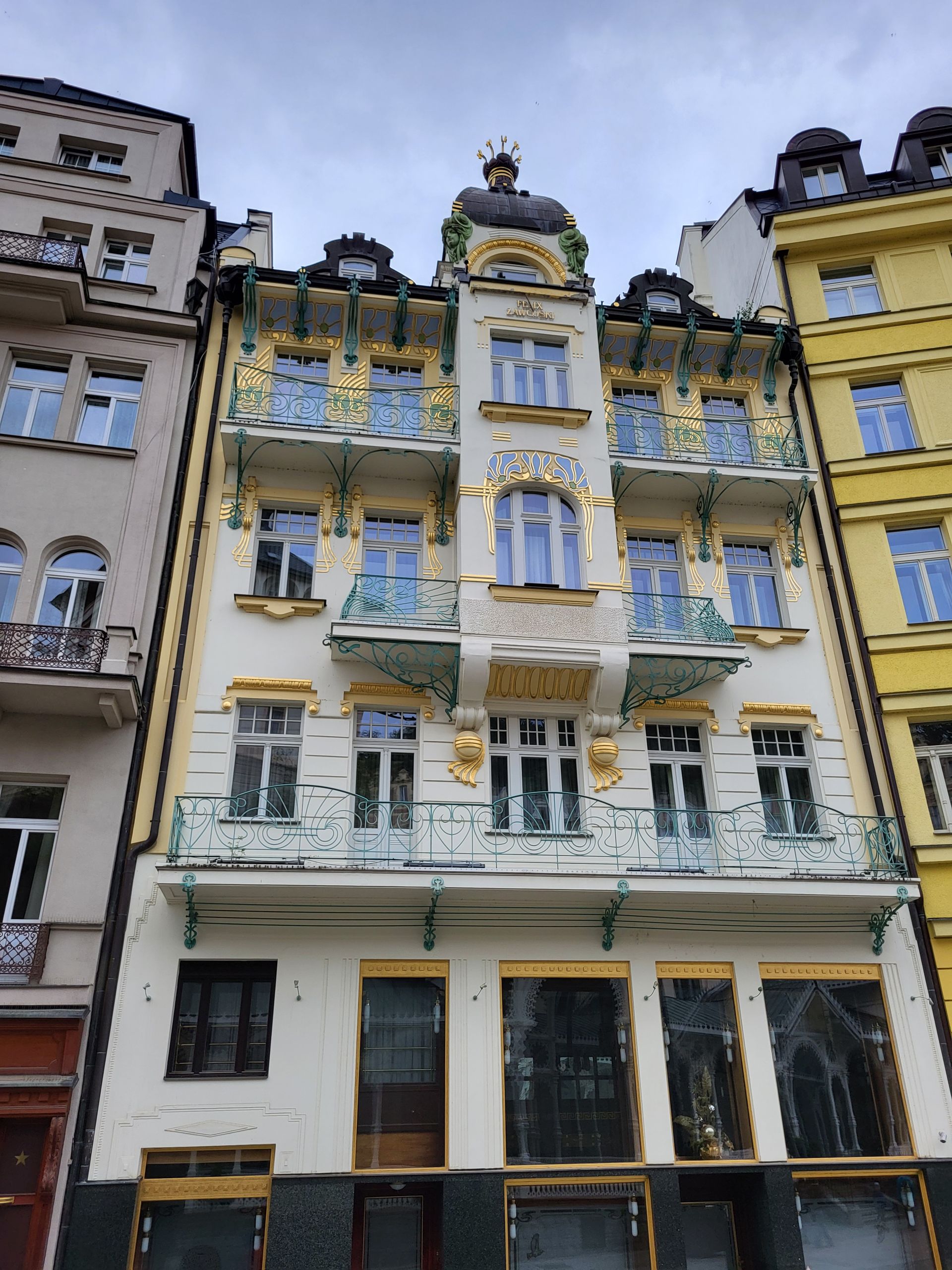
Only the Kurhotel Thermal with its 16 floors stood out with its gray socialist architectural style from the 1970s.

We walked along the Teplá, which flows through the spa center of Karlovy Vary, to the Imperial Spa.
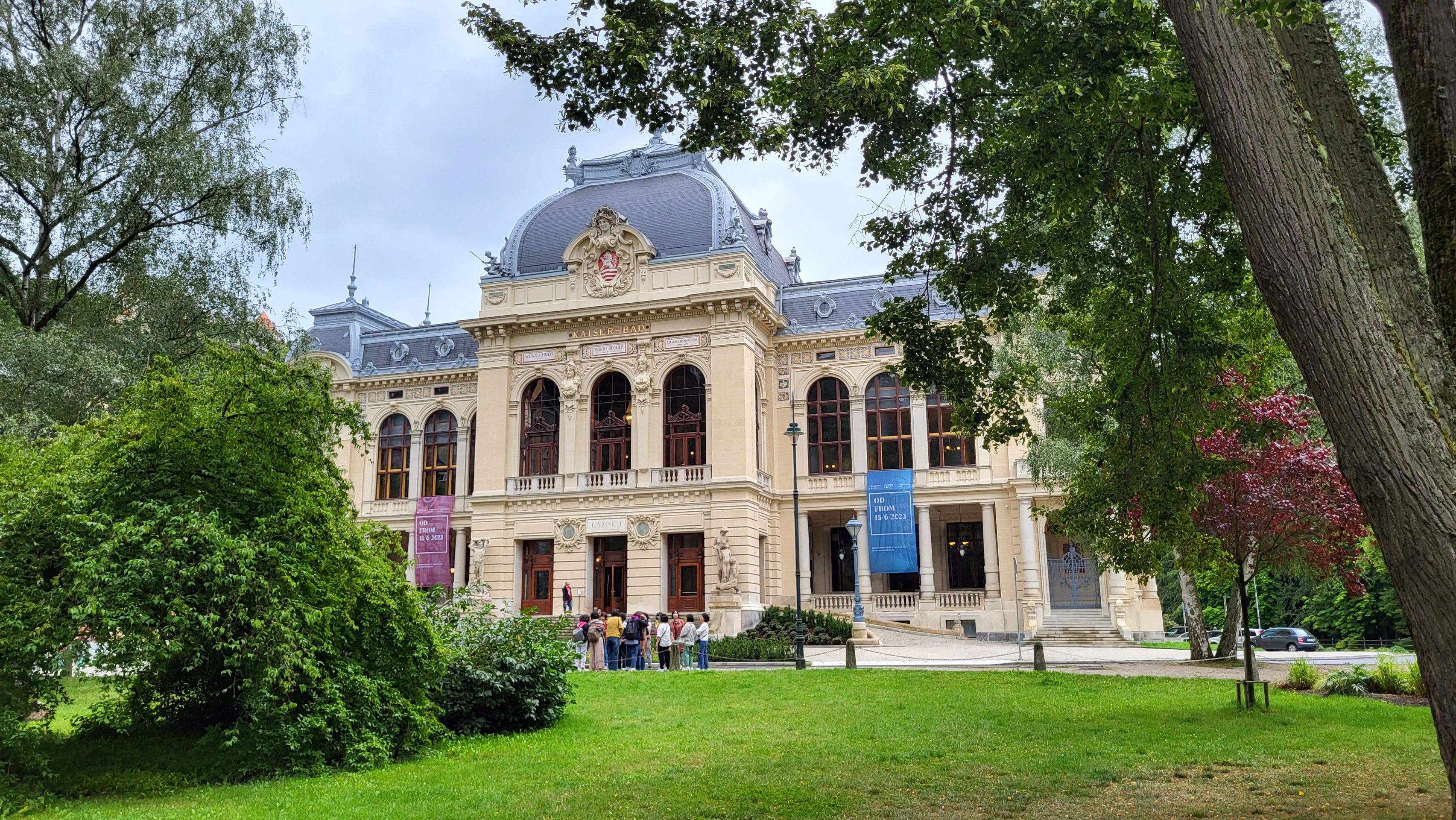
Originally, it was reserved for royal and princely families.
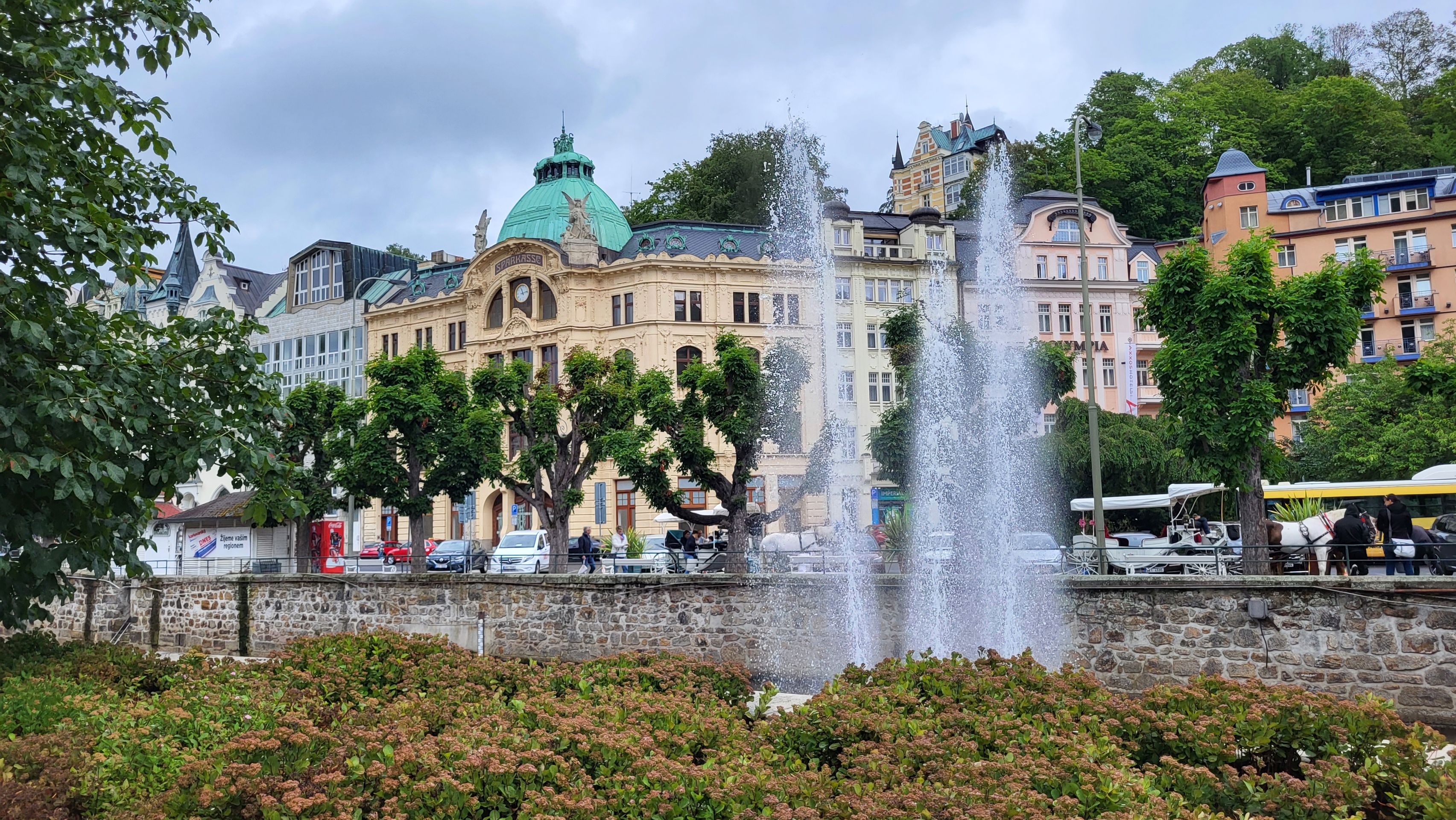
Even today, Karlovy Vary seemed to us to be a rather expensive place, offering a lot of expensive relaxation.

In a guide for bath guests, I read that exercise is also important during the spa treatment. A popular destination in nature for spa guests are the Hans-Heiling rocks, which we visited after our city walk.
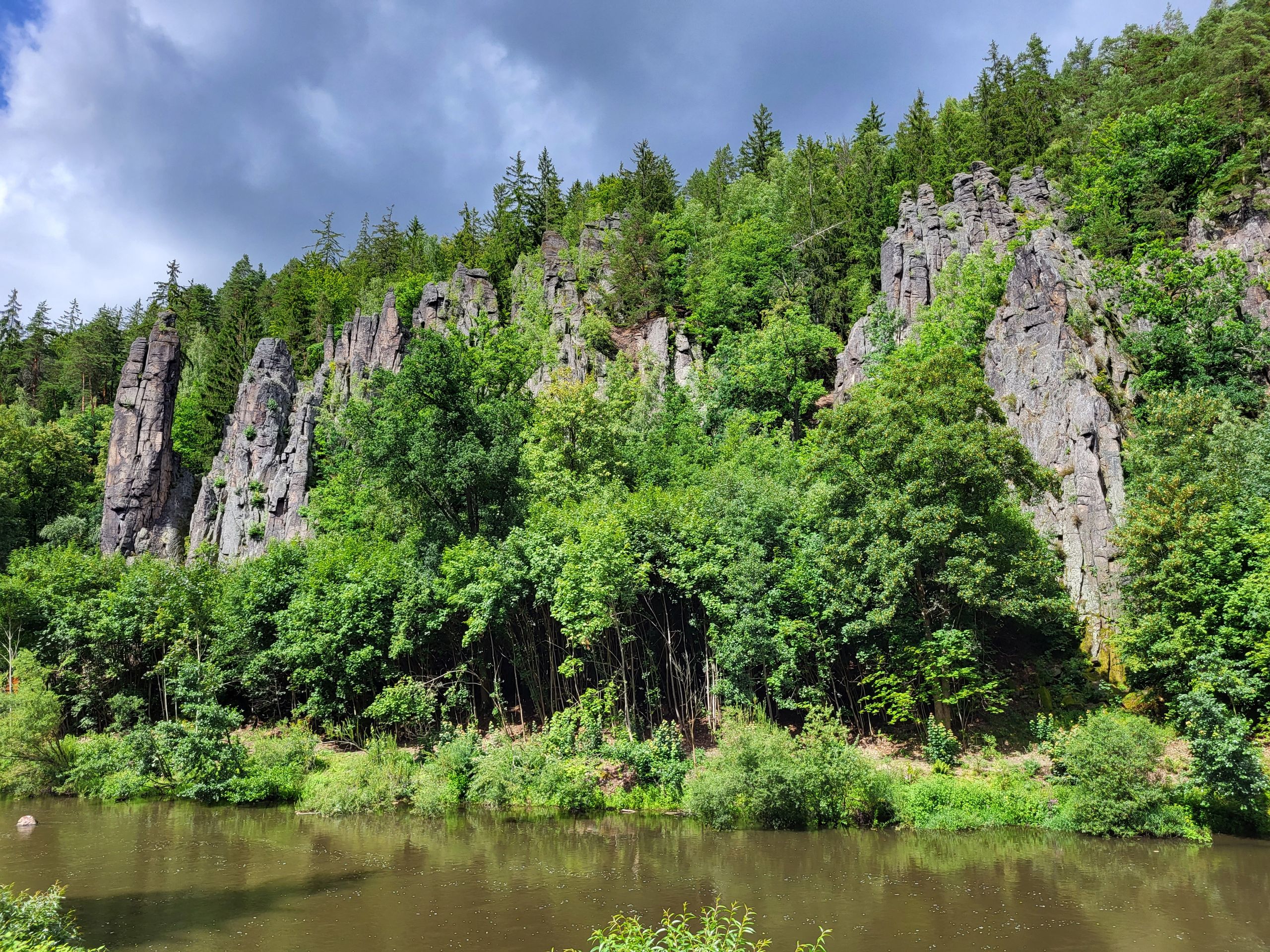
The hike from Karlovy Vary would have been 11 km one way, so we drove with our motorhome to the hiking parking lot, which was still about 3 km away from the rocks.
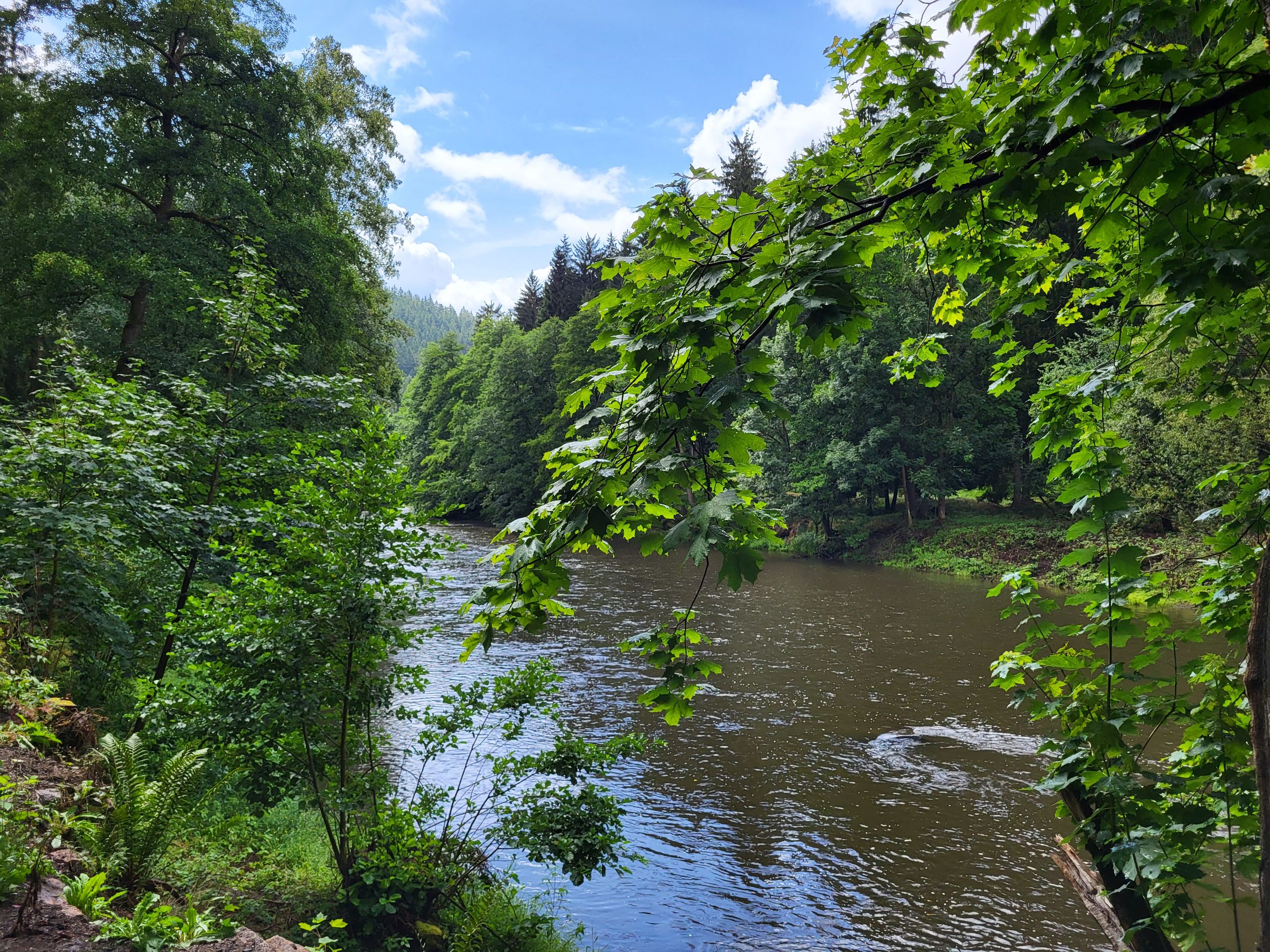
Unfortunately, it rained on the way, but the path was paved and well-developed.
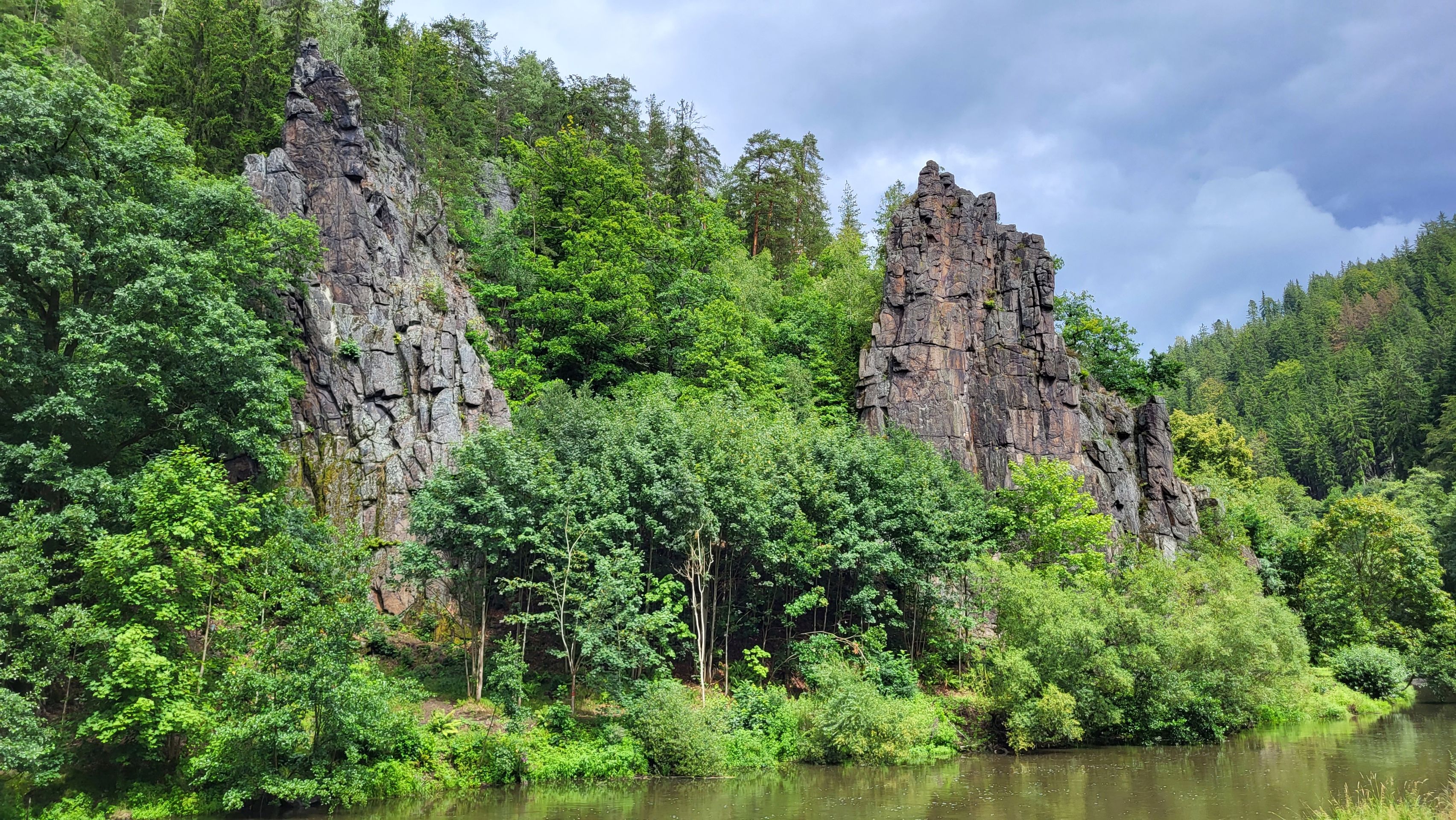
There was a restaurant at the rocks where we fortified ourselves with coffee and strudel for the return trip and could admire the rock formations from the terrace.
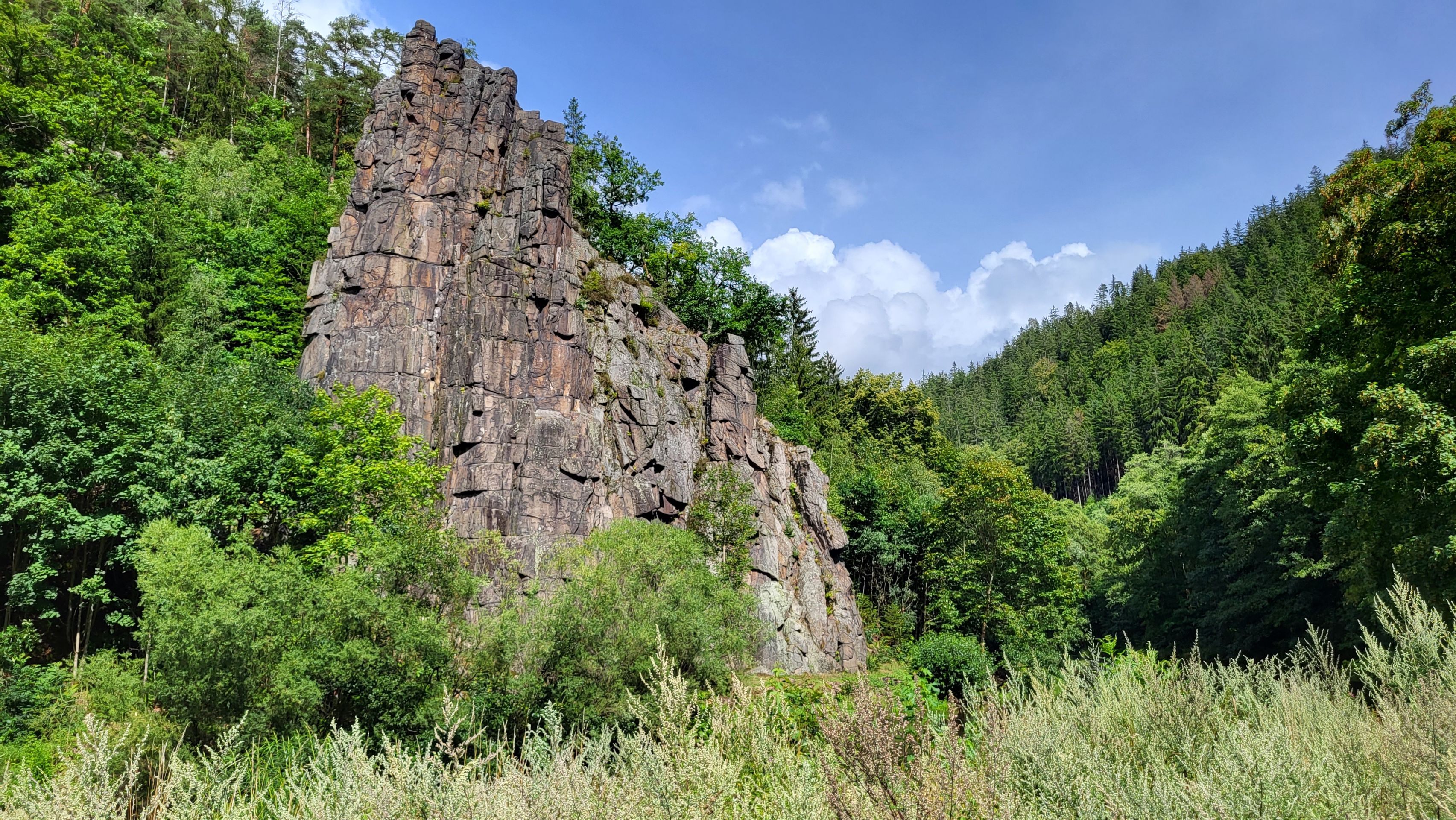
If we had hiked another 7 km, we would have reached Loket, which we planned to visit next.
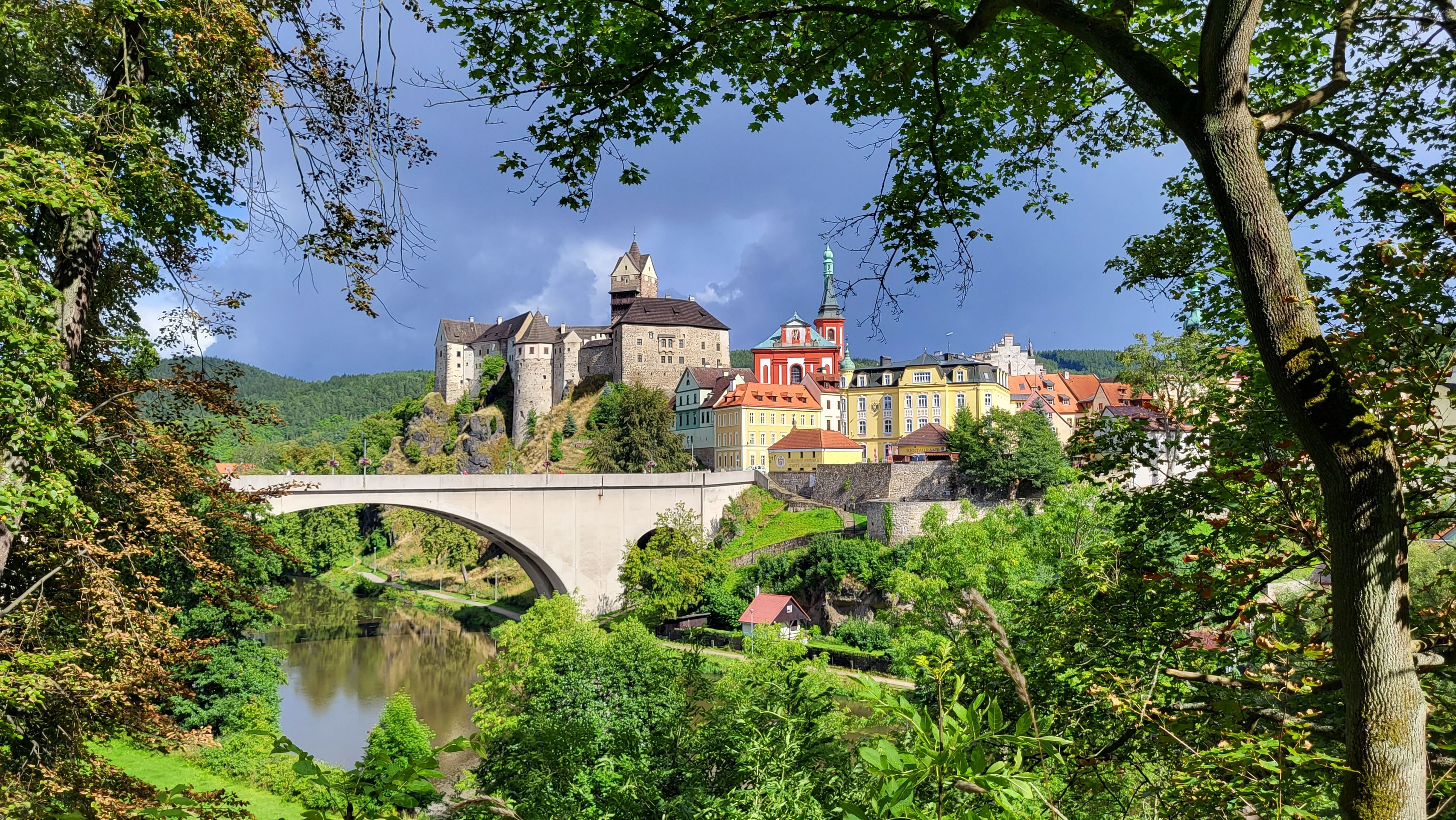
Above the town rises Loket Castle, where Emperor Charles IV was held captive by his father as a child. The disputes between his parents had escalated to such an extent that Karl's mother hid in the castle with her children from her husband Johann of Luxembourg. Johann finally took the castle by trickery, sent his wife away and imprisoned his son for two months.
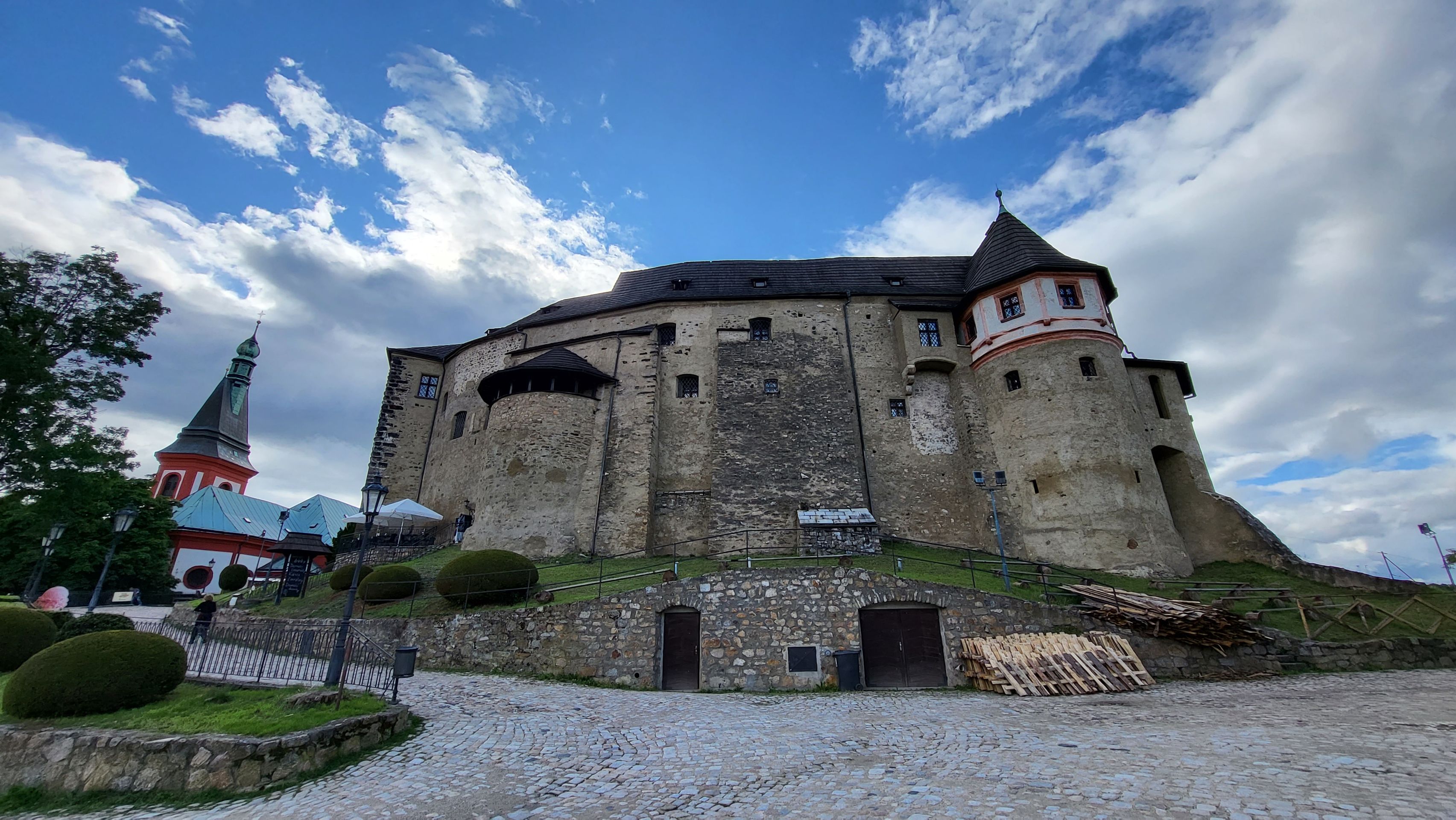
However, Karl IV returned to this place as an adult and also used it as a hunting lodge.
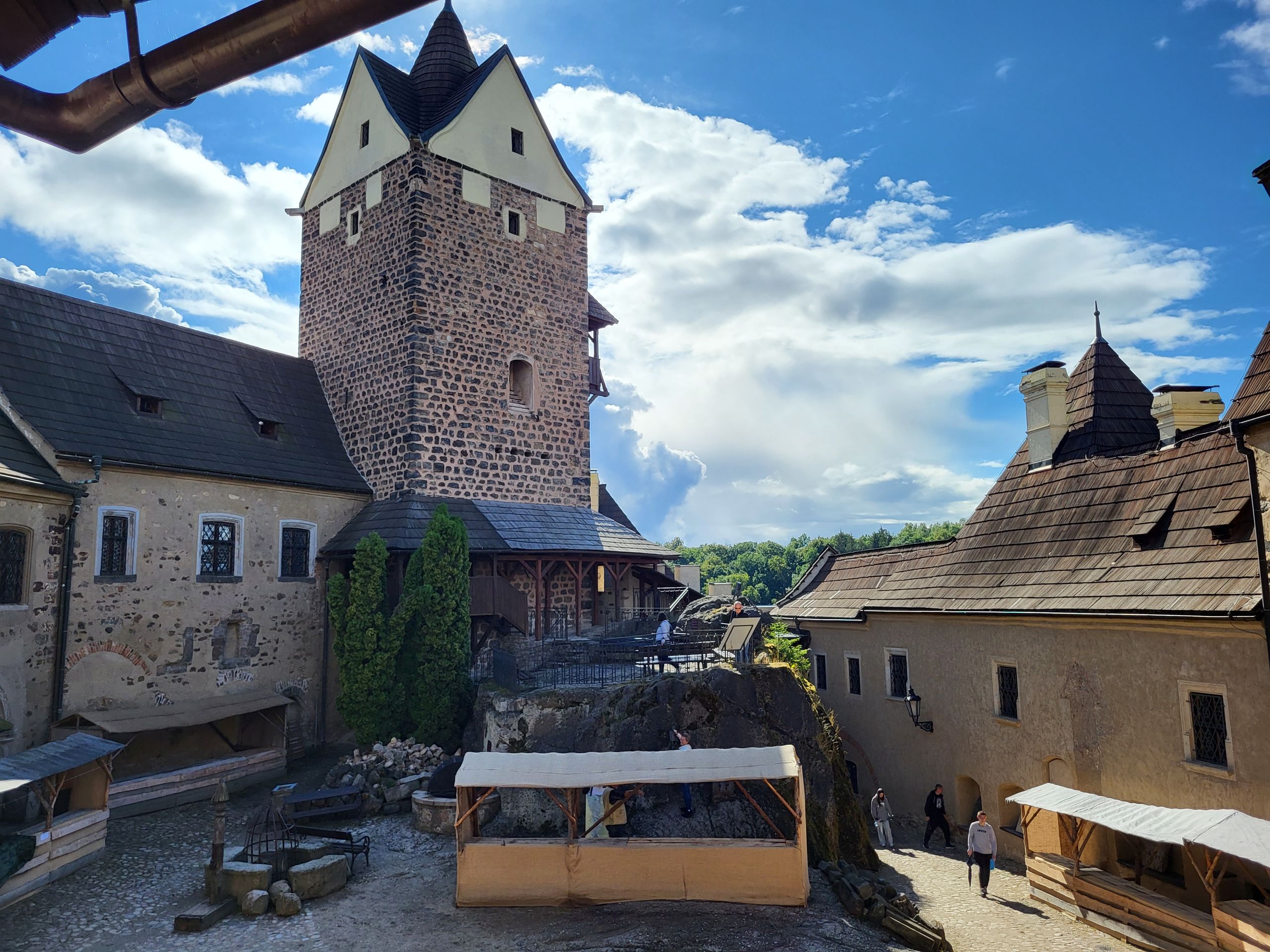
According to legend, he discovered a thermal spring during a hunt and subsequently founded the city of Karlovy Vary at this location.
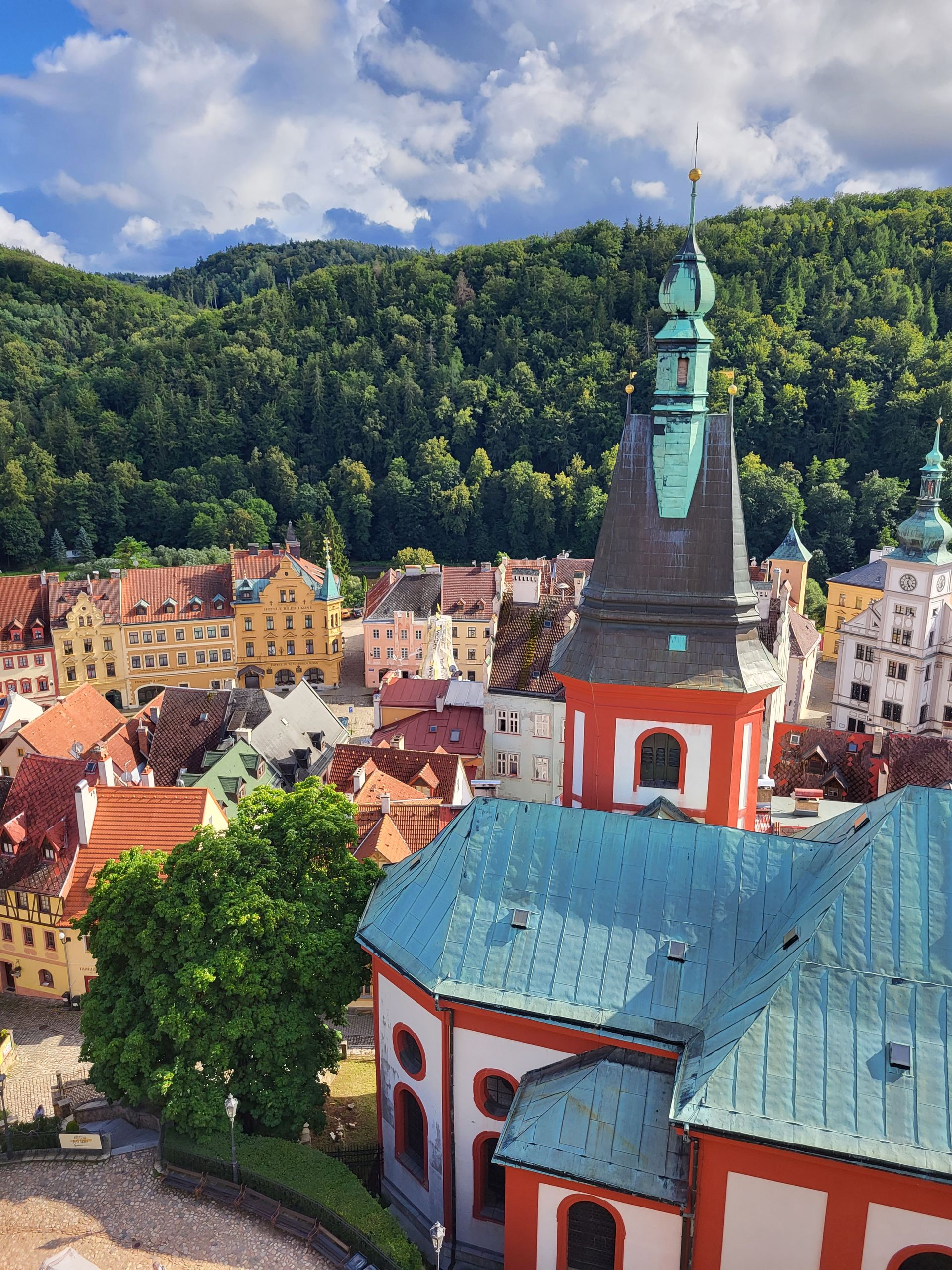
We also visited the castle from the inside. There were various small exhibitions, for example a meteorite that had once fallen into the castle moat, or an exhibition on torture and punishments in the Middle Ages, which were vividly presented in the castle's cells.
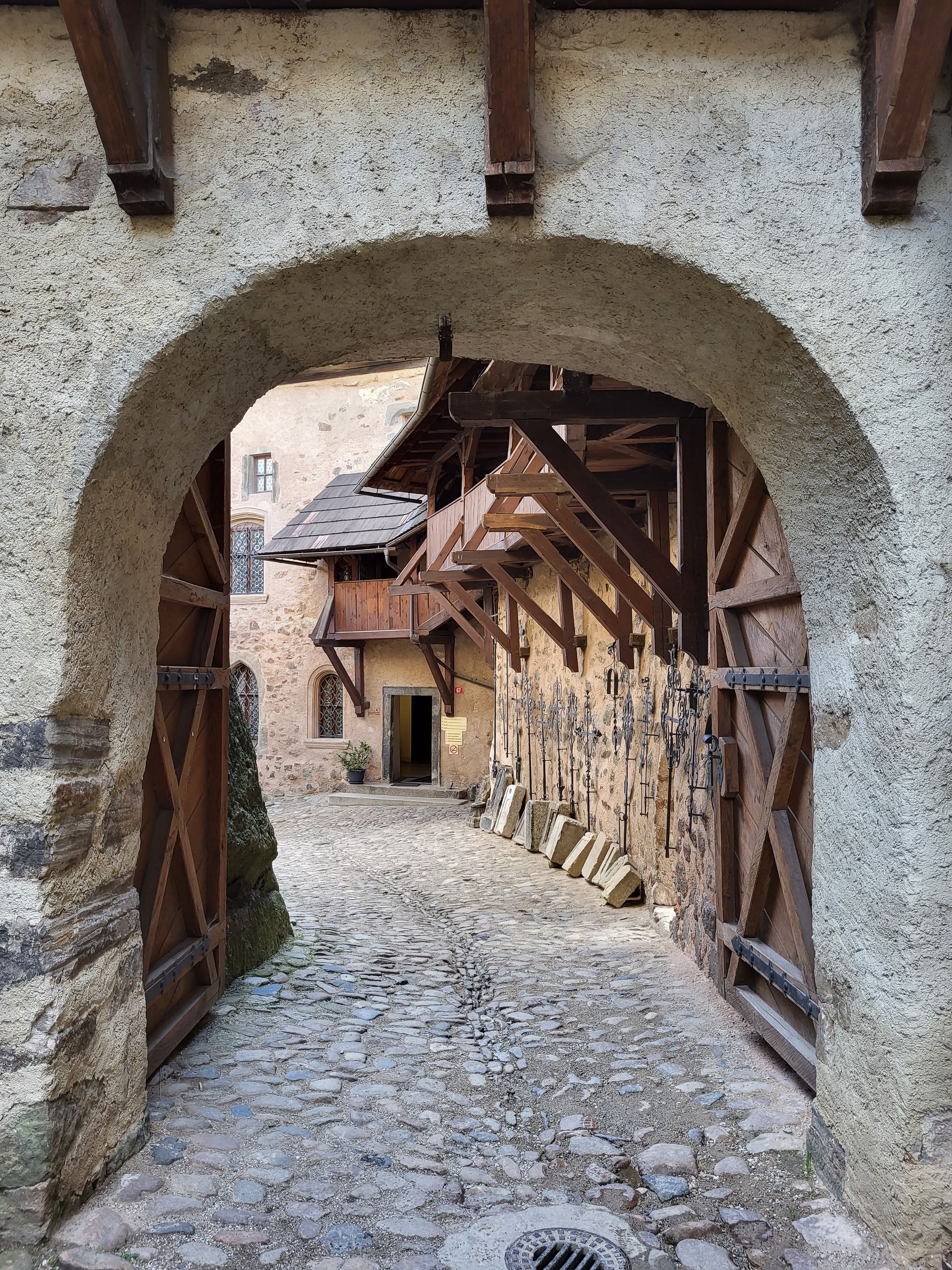
From 1822, the castle became a prison, with cells extending over several floors and some of which can still be visited today.
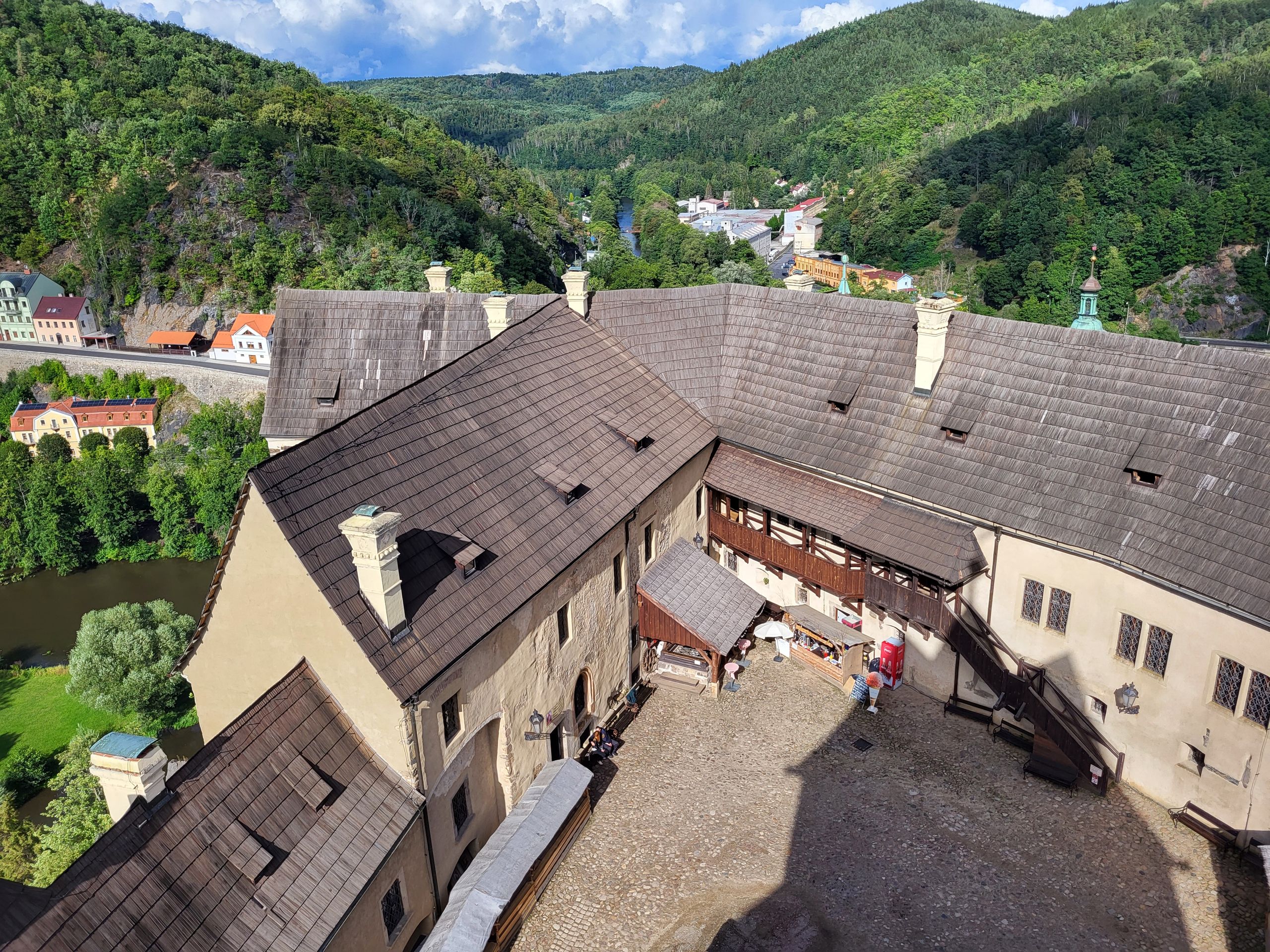
The tour was a bit confusing because there were so many entrances and exits, but no real signage. So we wandered around the castle a bit until we found all parts of the exhibition.

Afterwards, we took a look at the town with its beautiful market square with the town hall and the plague column.

There is also the Hotel 'Zum weißen Ross', where Goethe celebrated his 74th birthday. He proposed to the then 19-year-old Baroness Ulrike von Levetzow, but was rejected. After that, he never returned to western Bohemia...
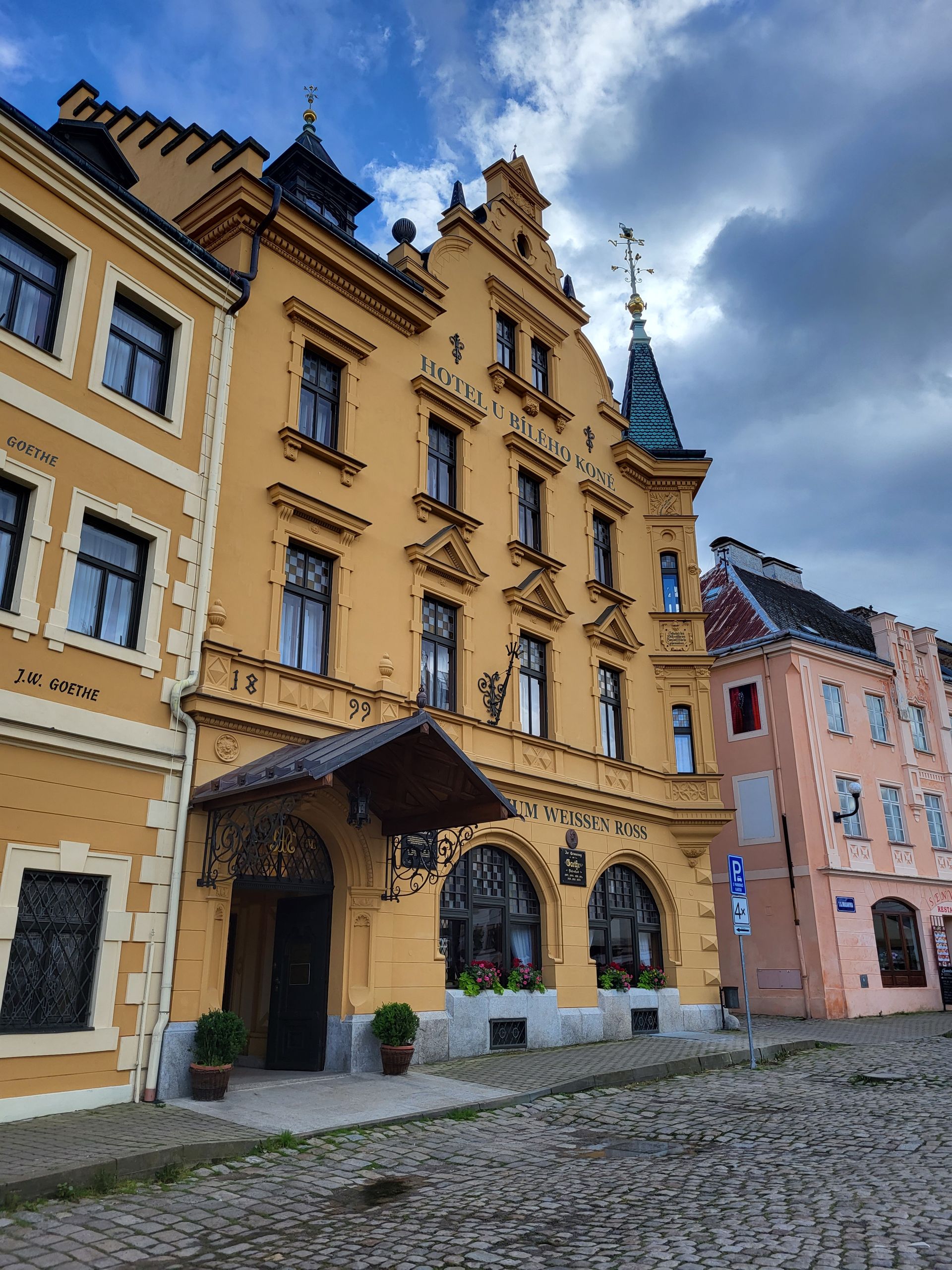
However, in 1807 he wrote about Loket (German: Elbogen): 'Today we were in Ellbogen, which is indescribably beautiful and can be admired as a work of art from all sides.'
Ingwadiše go Lengwalo la Ditaba
Karabo (3)
Joe
Schöner Beitrag!Lothar
Tolle Information in lebendiger Schilderung.
Frage: Kann man in Loket auch Heilwasser aus einer Quelle trinken?Mir ist kein Heilwasser in Lolet aufgefallen, ich habe aber auch nicht darauf geachtet.
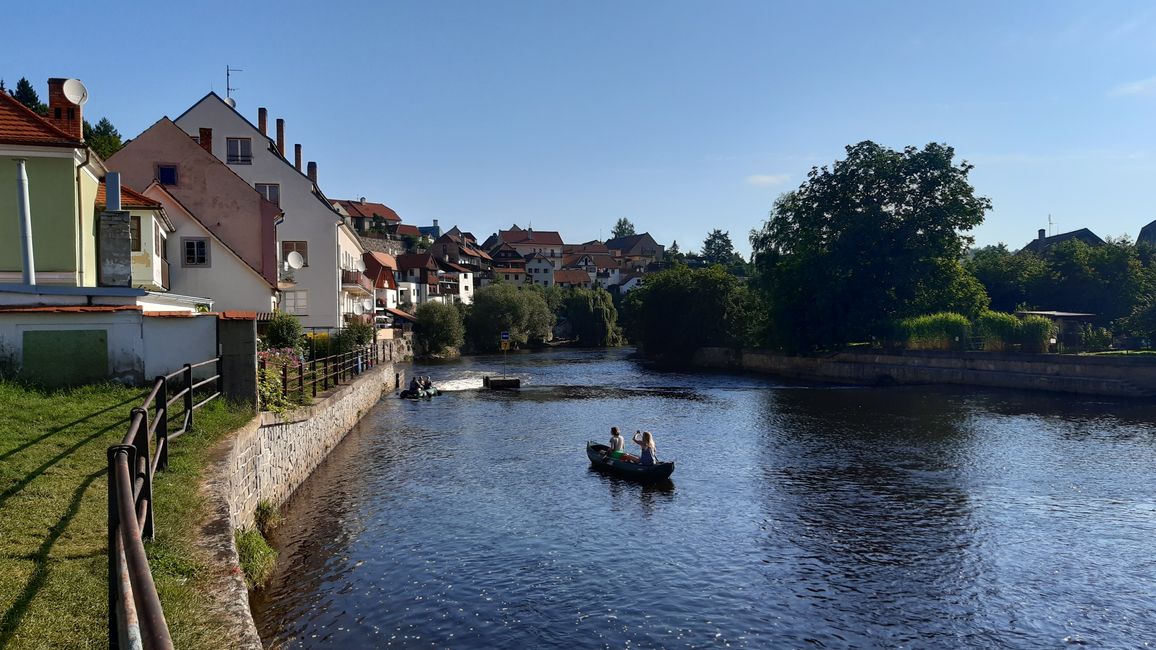
Dipego tša maeto Czechia e ile ya re
